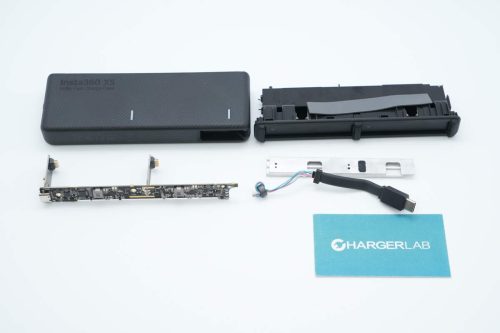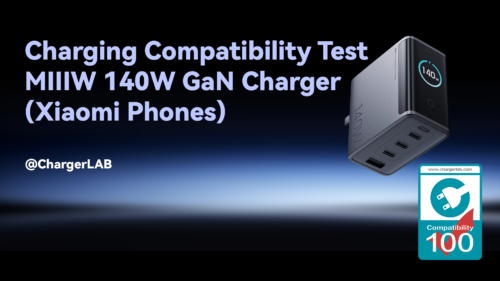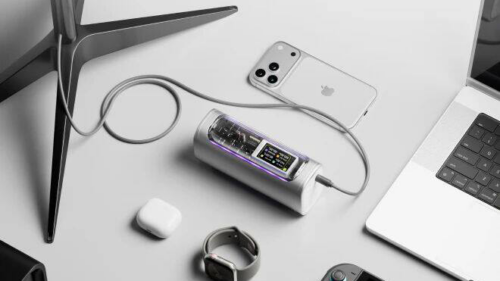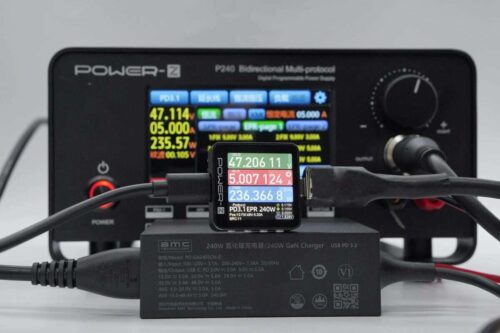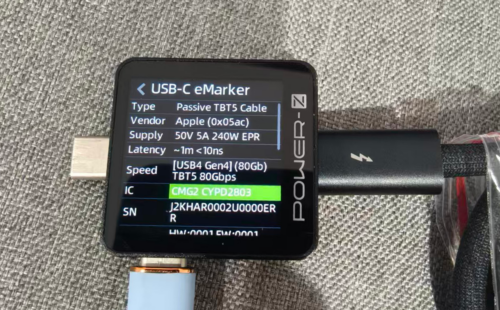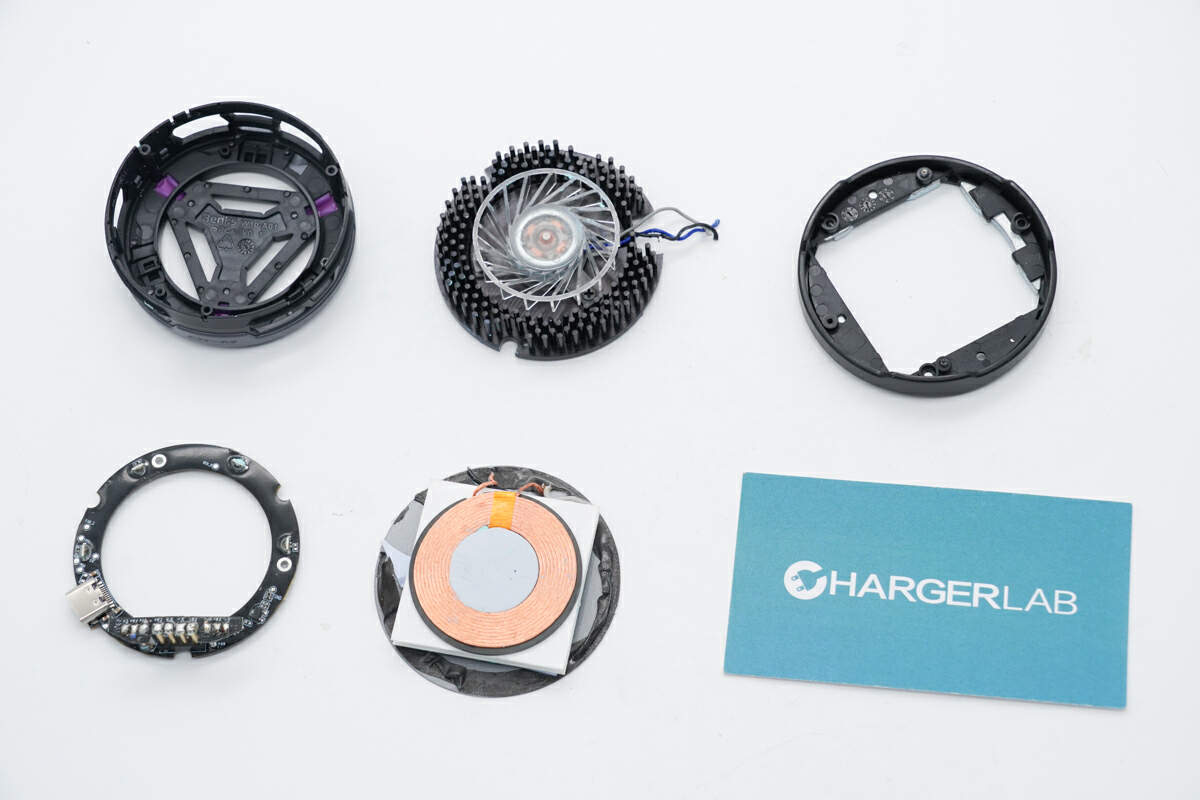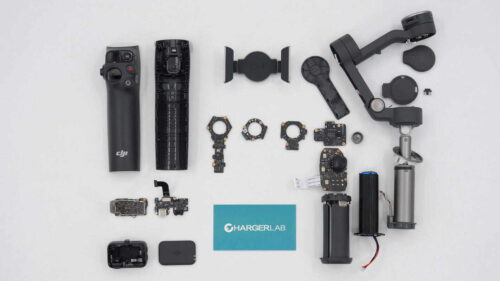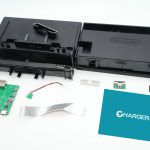Introduction
In the first half of this year, Insta360 released its X5 panoramic camera. With stunning 8K image quality, a powerful AI triple-chip system, and intelligent editing features, it has quickly become a flagship product in the high-end 360 camera market—ideal for sports enthusiasts, content creators, and travel vloggers. This teardown focuses on the multi-functional Utility Fast Charge Case, a dedicated accessory designed specifically for the Insta360 X5. The case has been upgraded in both form and function, offering a compact, lightweight design that is easy to carry for on-the-go use.
It features two battery slots and a built-in USB-C output cable, allowing you to charge two spare batteries and the Insta360 X5 camera simultaneously. Supporting PD fast charging, it can charge the first battery to 80% in just 28 minutes, significantly improving charging efficiency and ensuring you never miss a shot. Let’s take a closer look at the design and build quality of this essential accessory.
Product Appearance
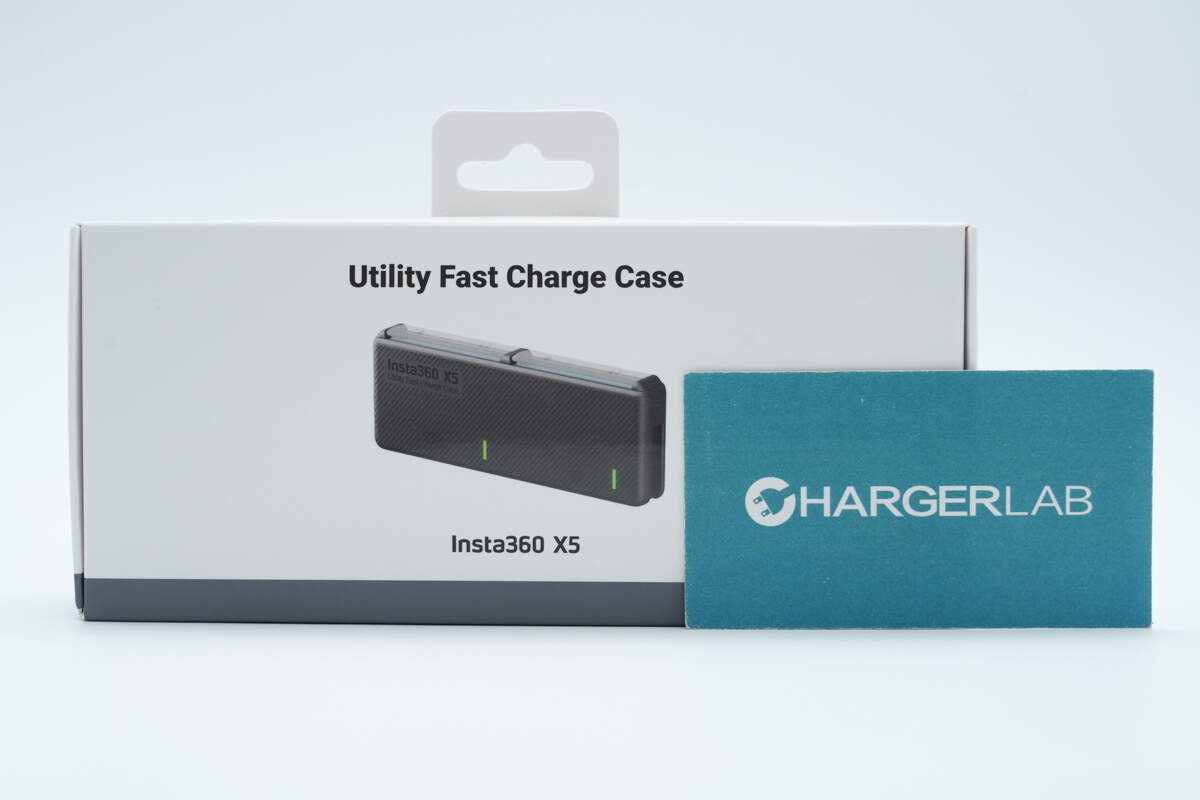
The front of the packaging features the product's appearance and official name.
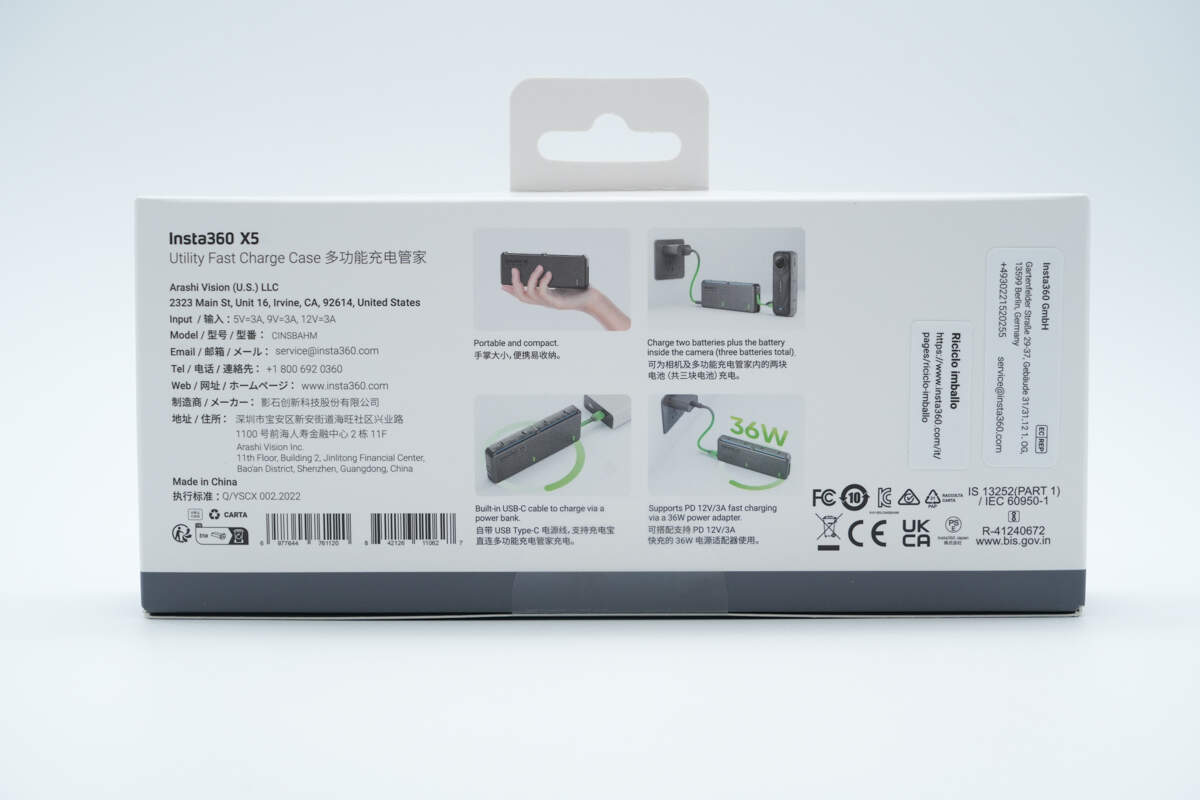
The back of the packaging displays the product specifications, usage scenarios, and certification details.
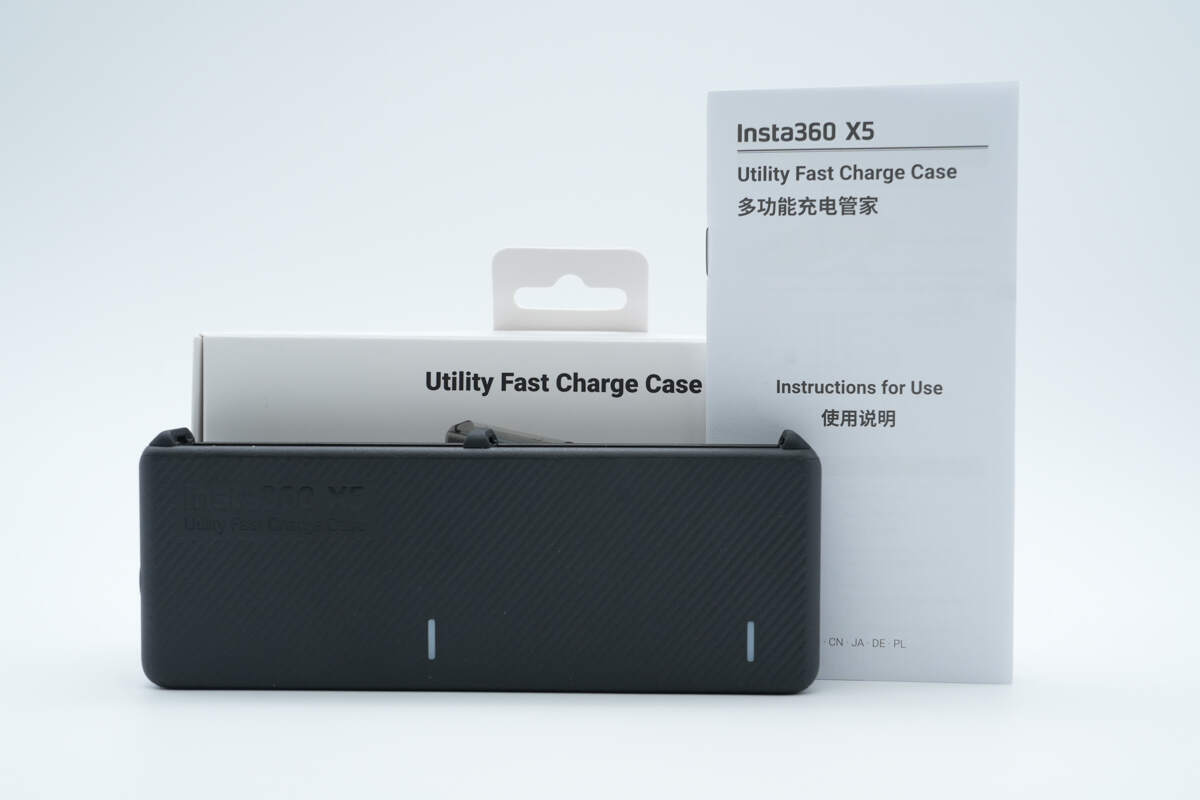
The package includes the Utility Fast Charge Case and some documents.
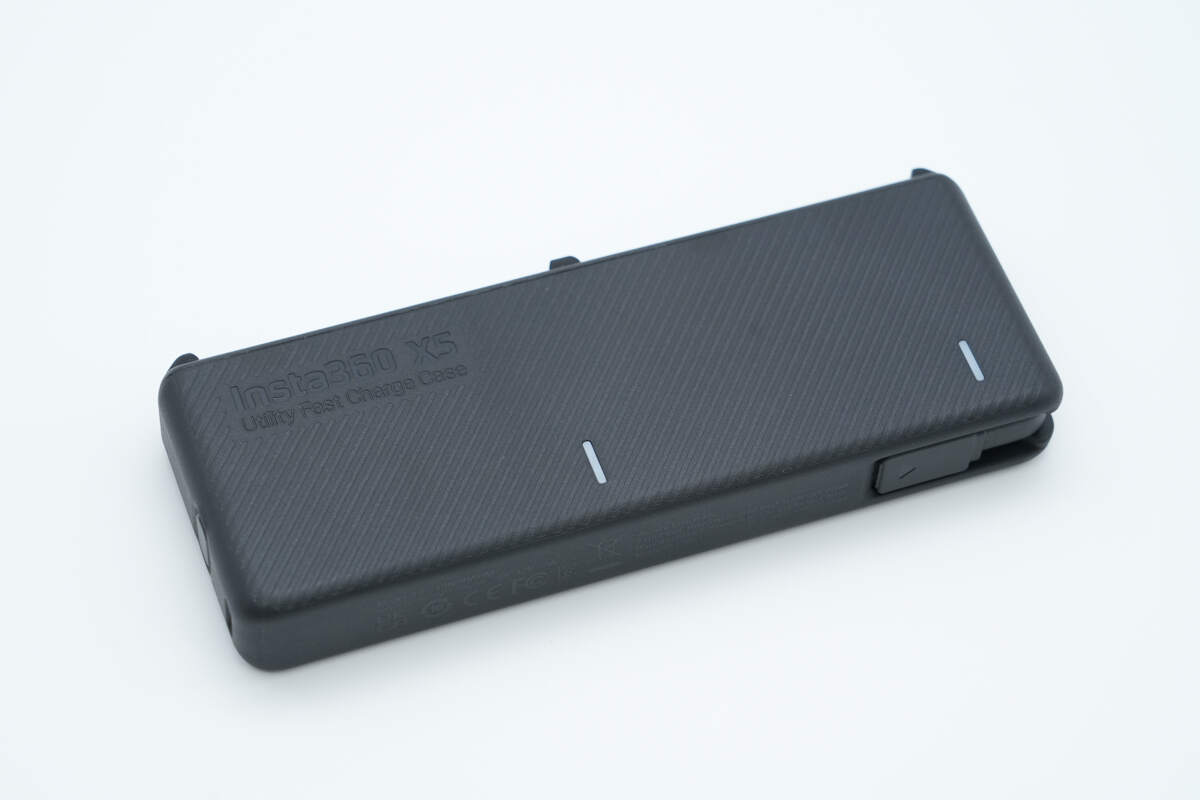
The casing is made of flame-retardant PC material with a matte finish.
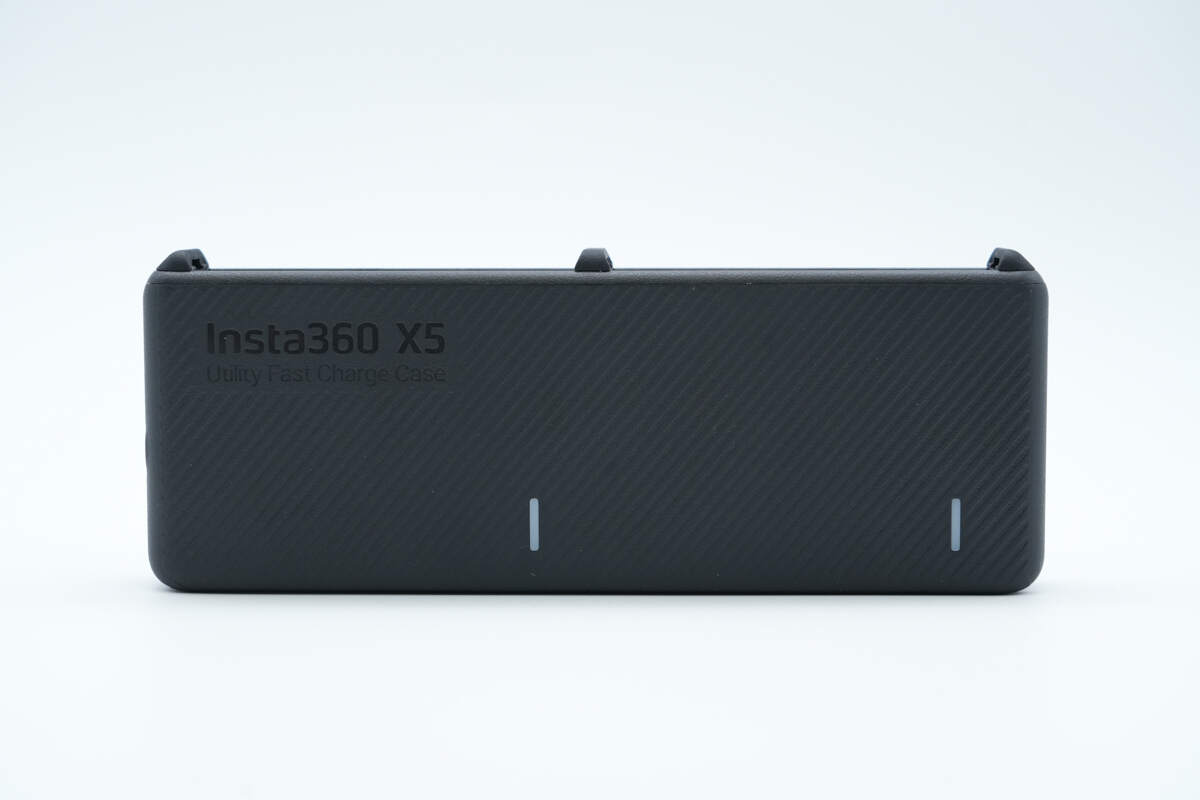
The front features a slanted texture and two indicator lights.
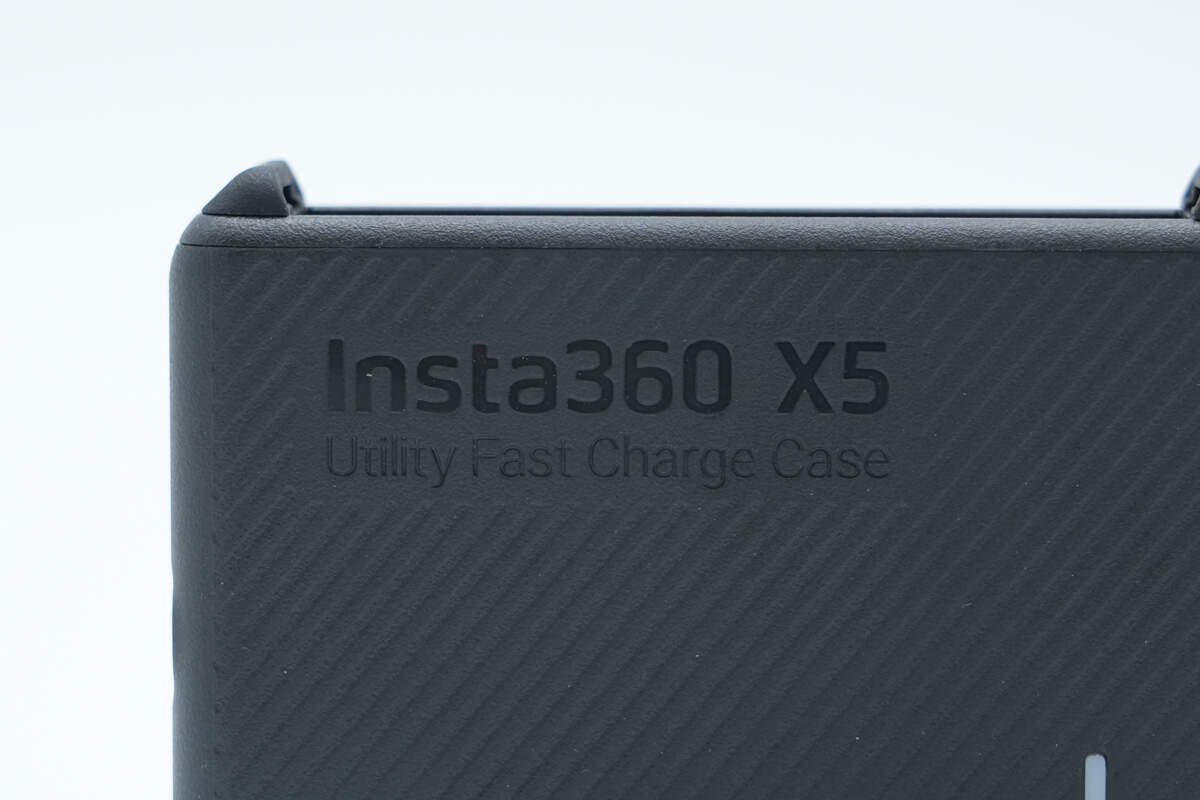
The name is located in the upper left corner.
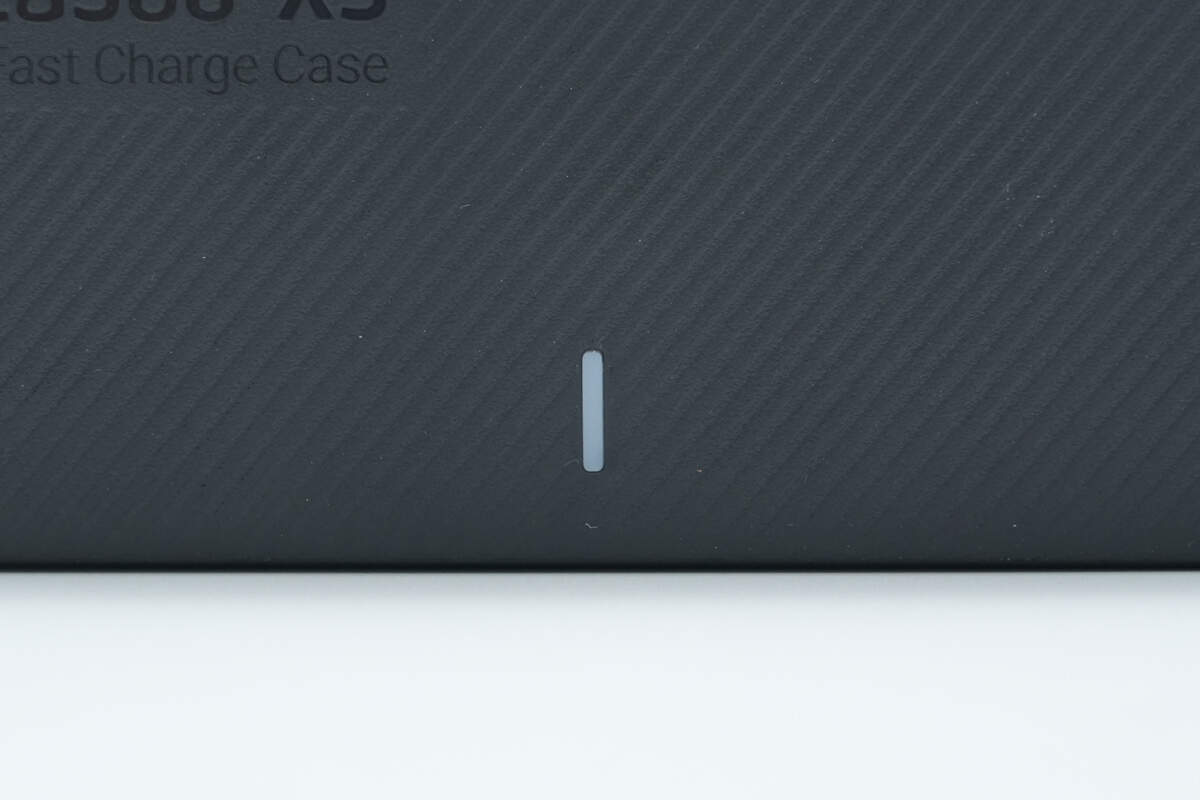
The yellow indicator light blinking steadily means charging is in progress and the battery level is below 80%.
The green indicator light blinking steadily means charging is in progress and the battery level is above 80%.
A solid green light means charging is complete.
When the indicator lights are off, it means the external power source is disconnected.
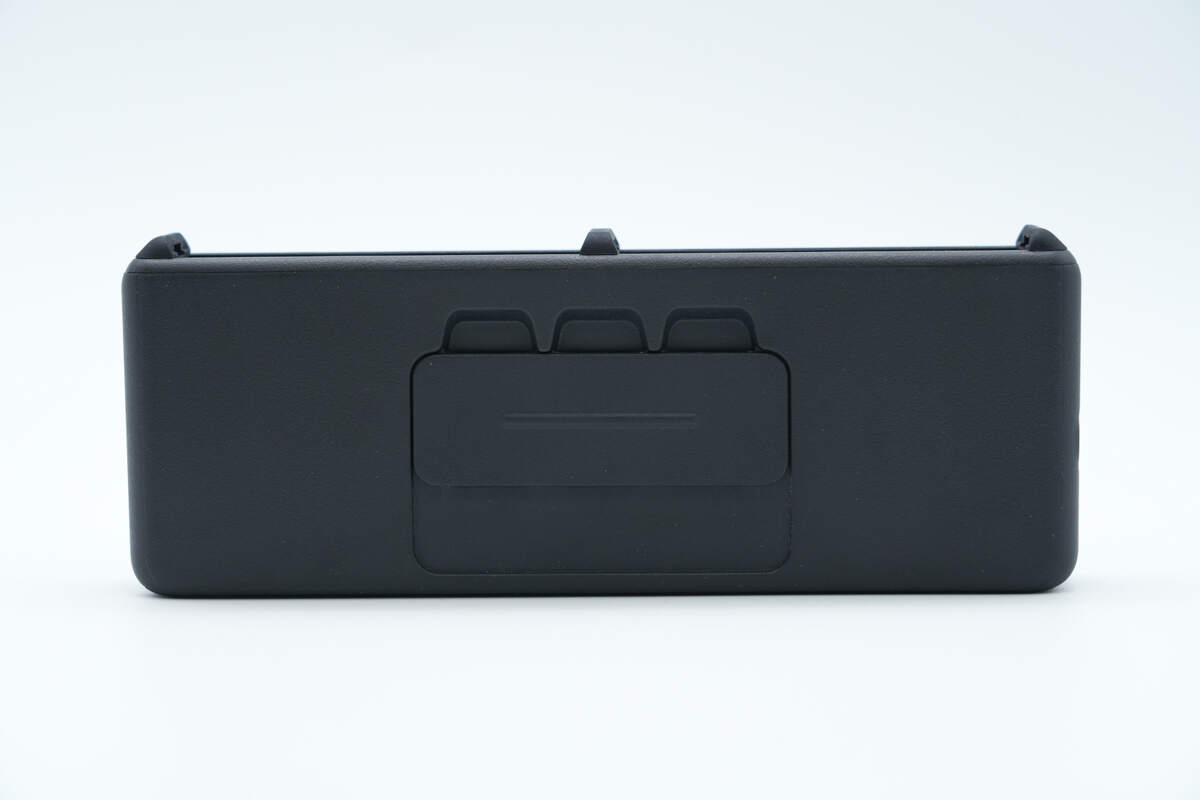
The back has Micro SD card slots with a sliding cover.
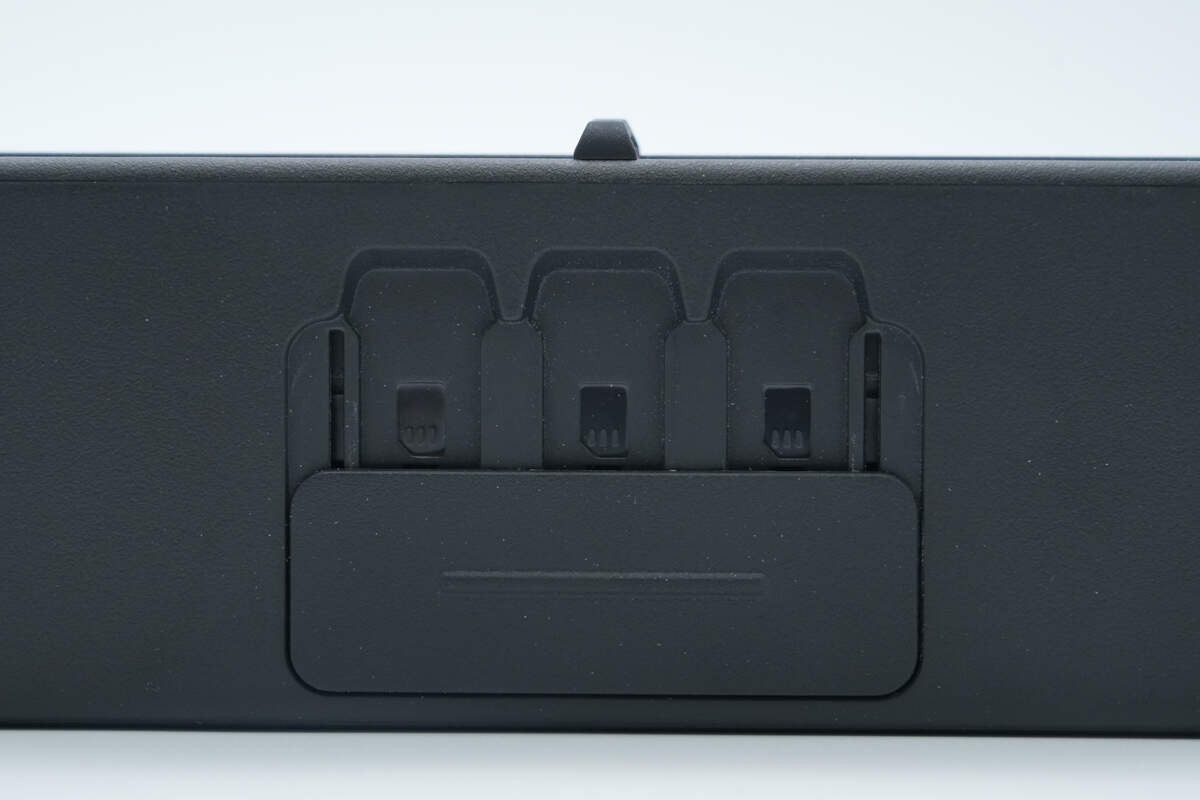
There are three storage slots in total.
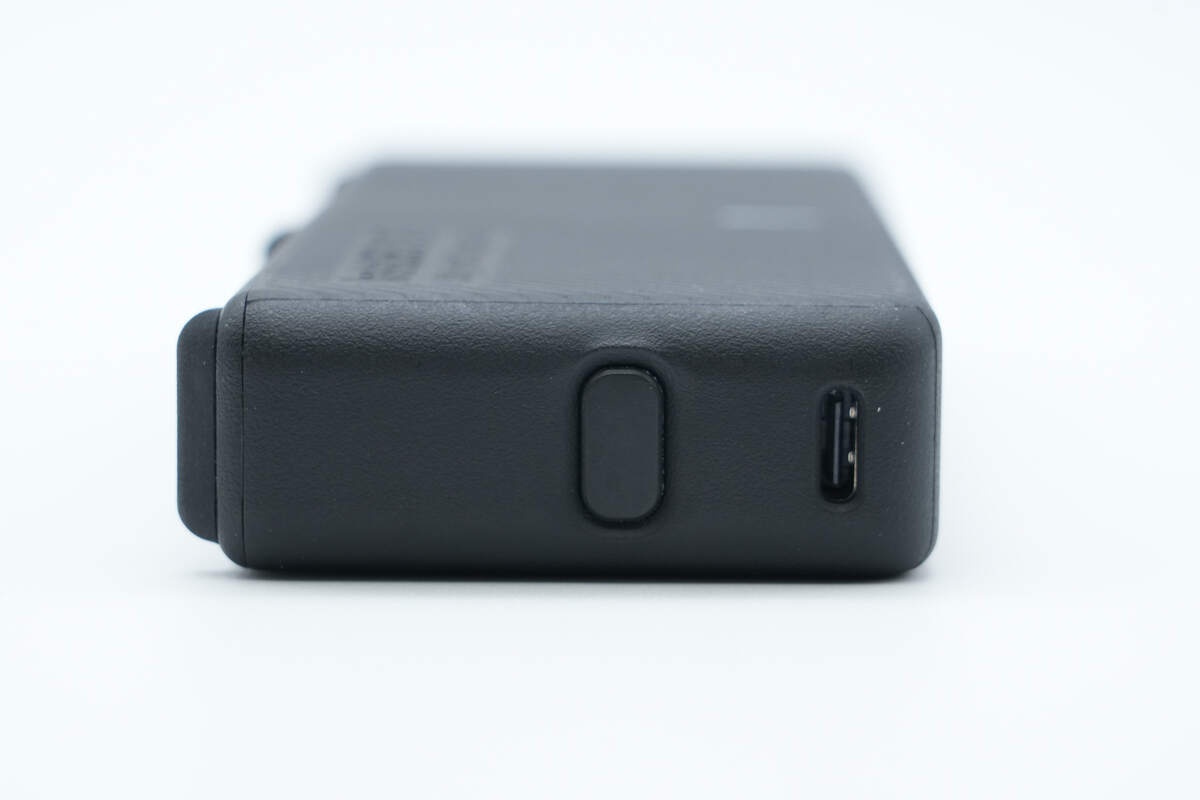
This side has a battery level check button and a USB-C port.
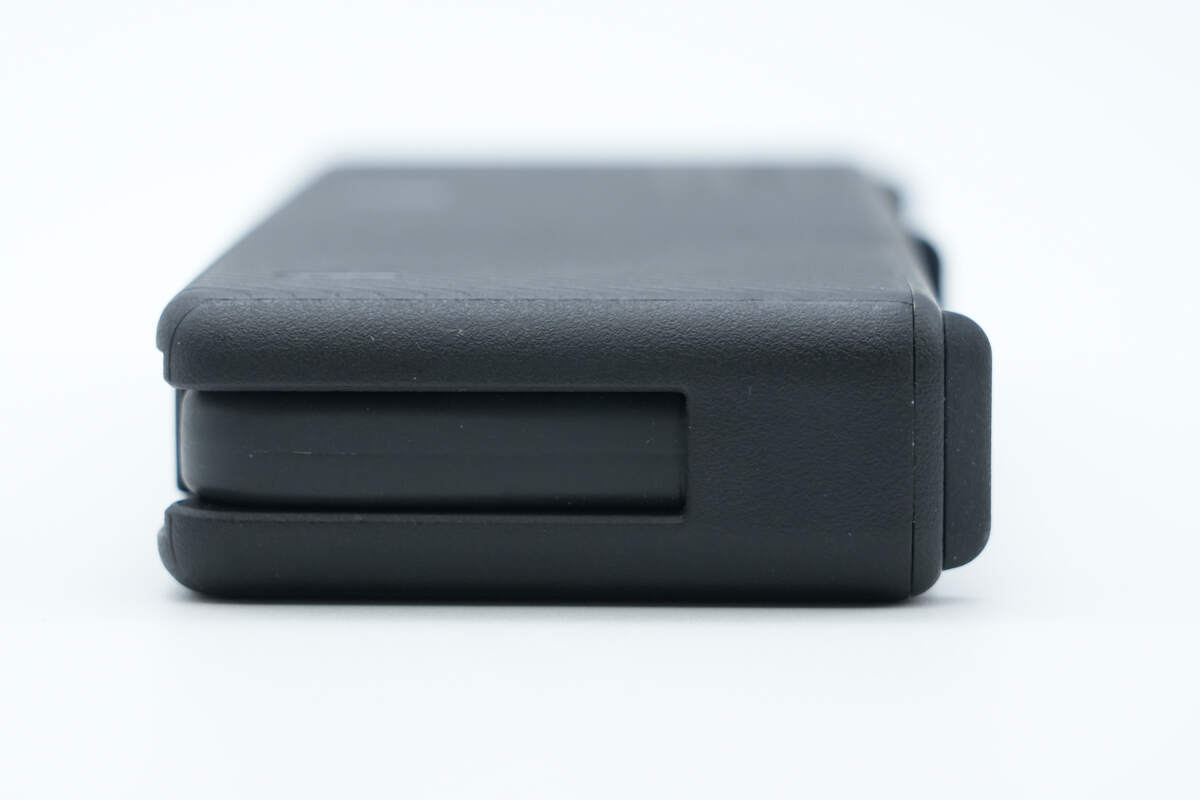
The other end has a built-in USB-C cable.
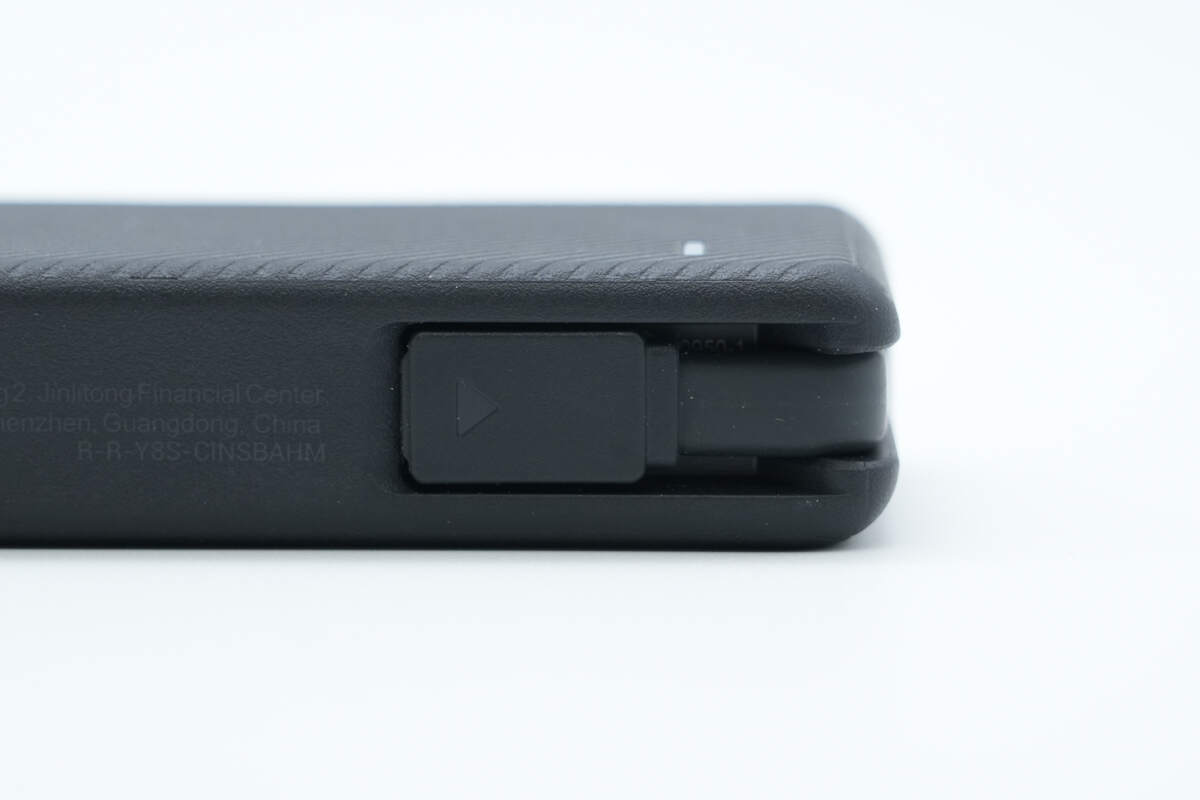
The USB-C connector is stored inside the case.
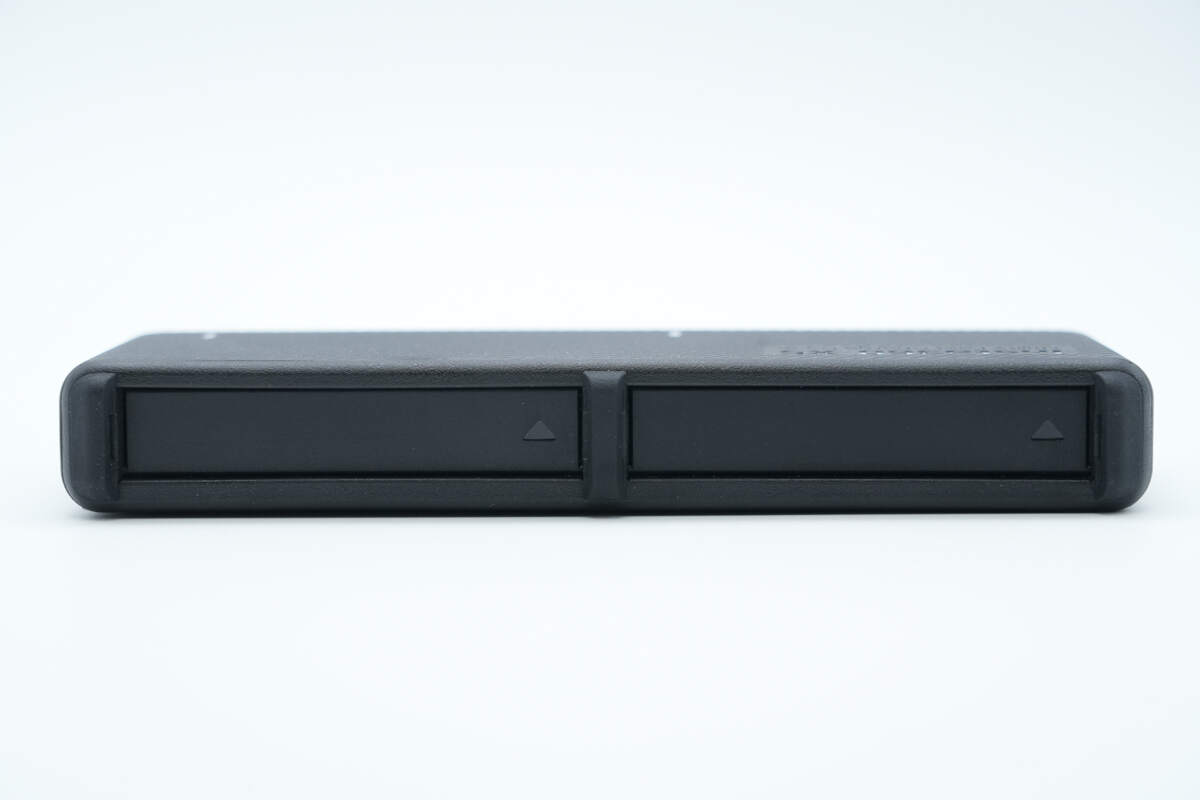
It is equipped with two battery slots, each covered by a top lid.
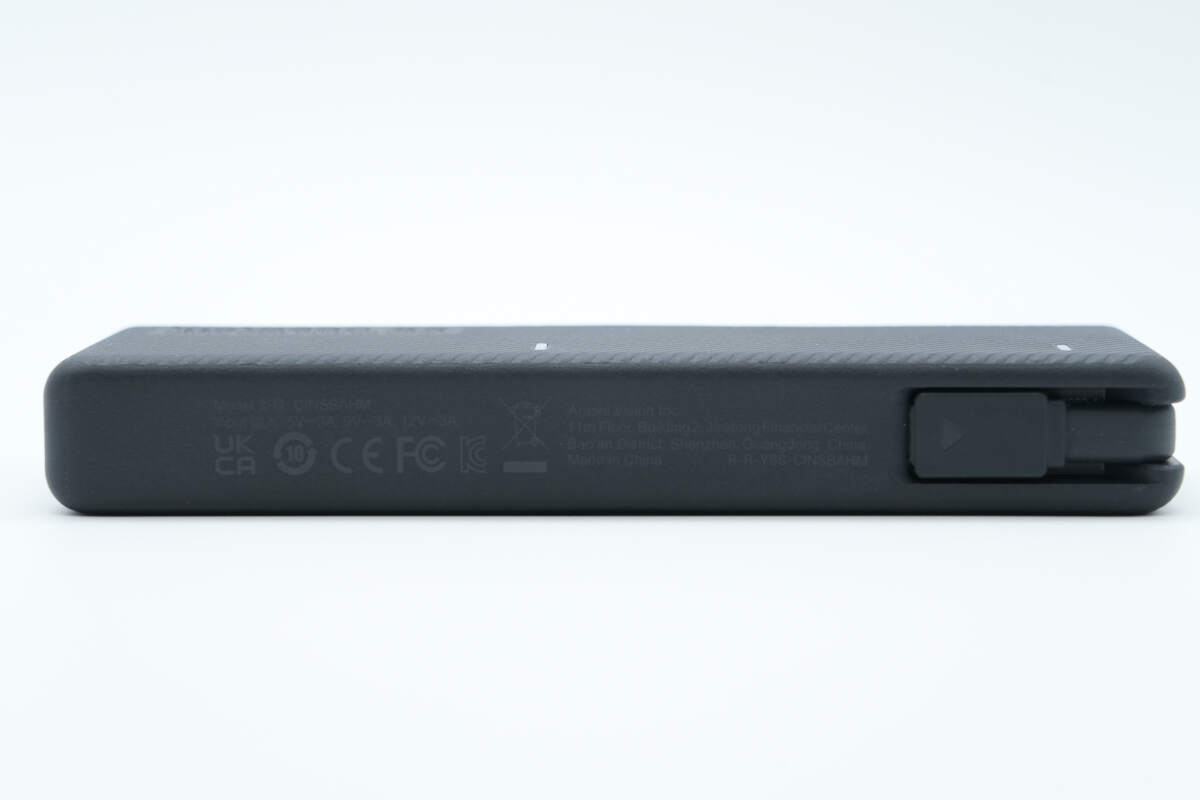
The bottom of the casing is printed with the product specifications.
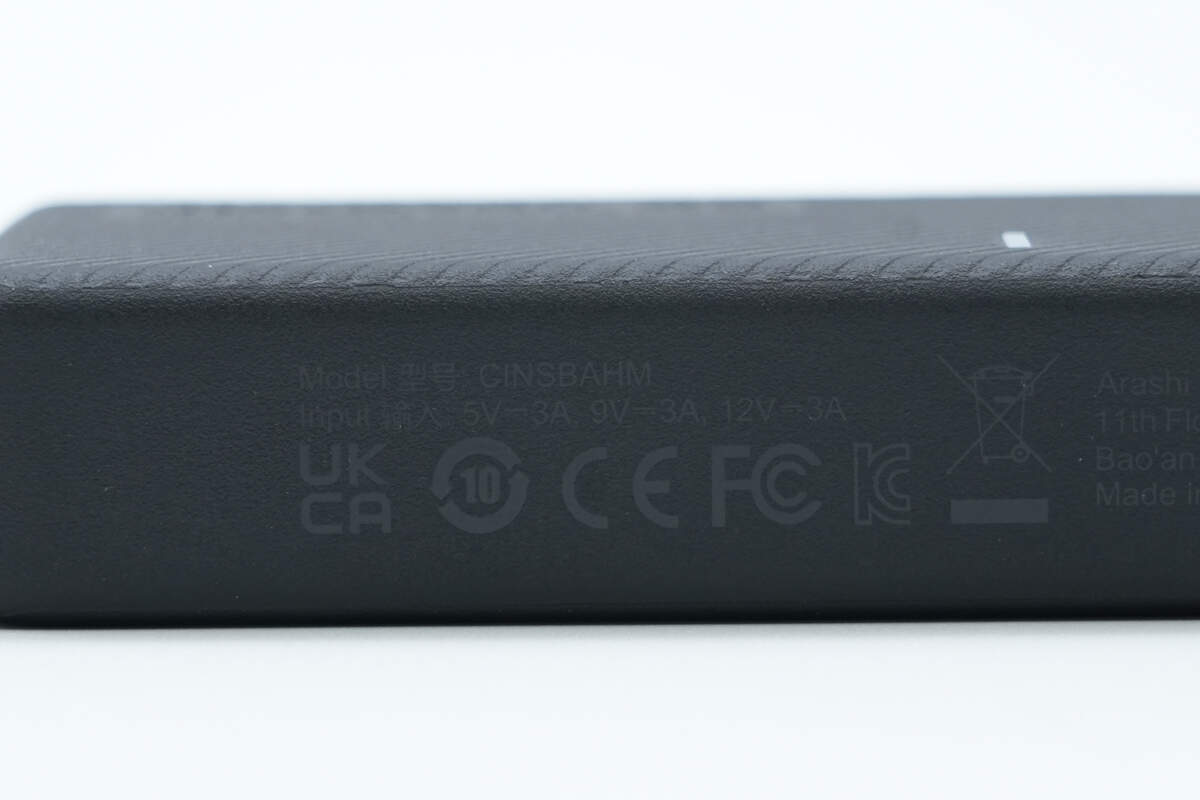
Model: CINSBAHM
Input: 5V 3A, 9V 3A, 12V 3A
Certified by UKCA, CE, FCC, and KC.
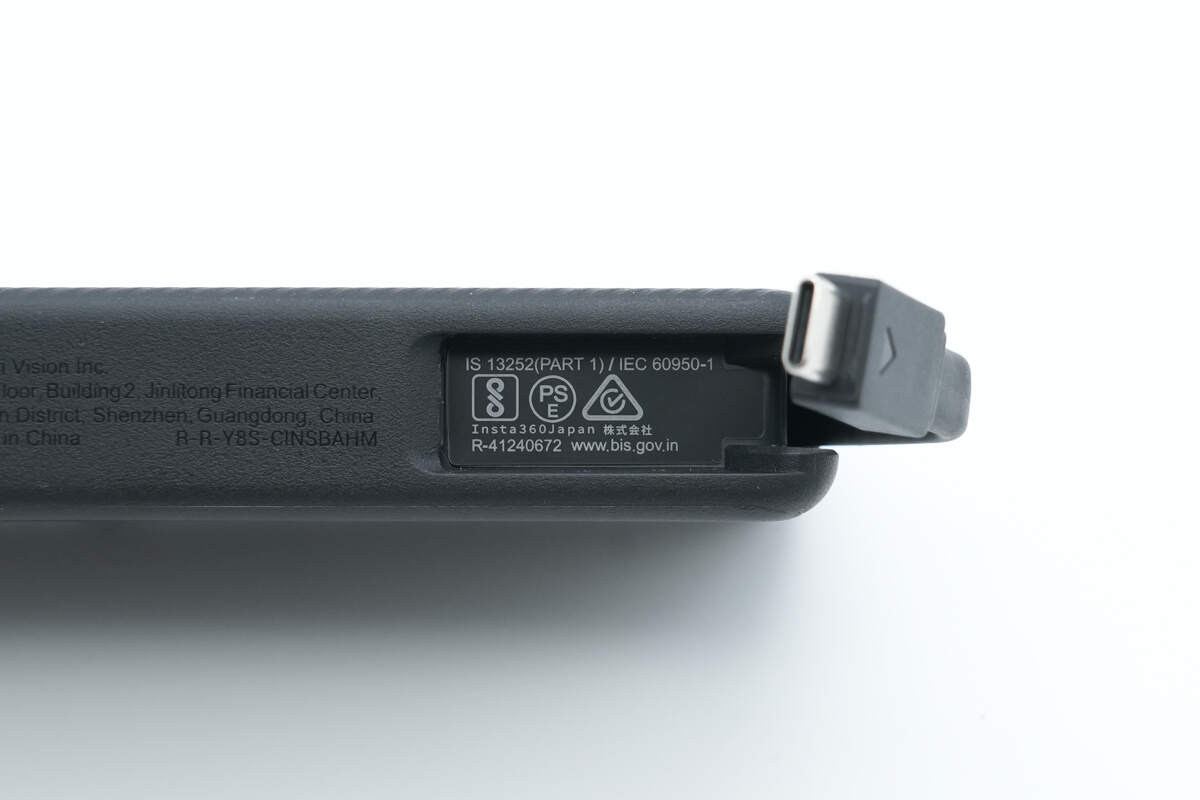
It is also certified by PSE and Indian BIS safety standards.
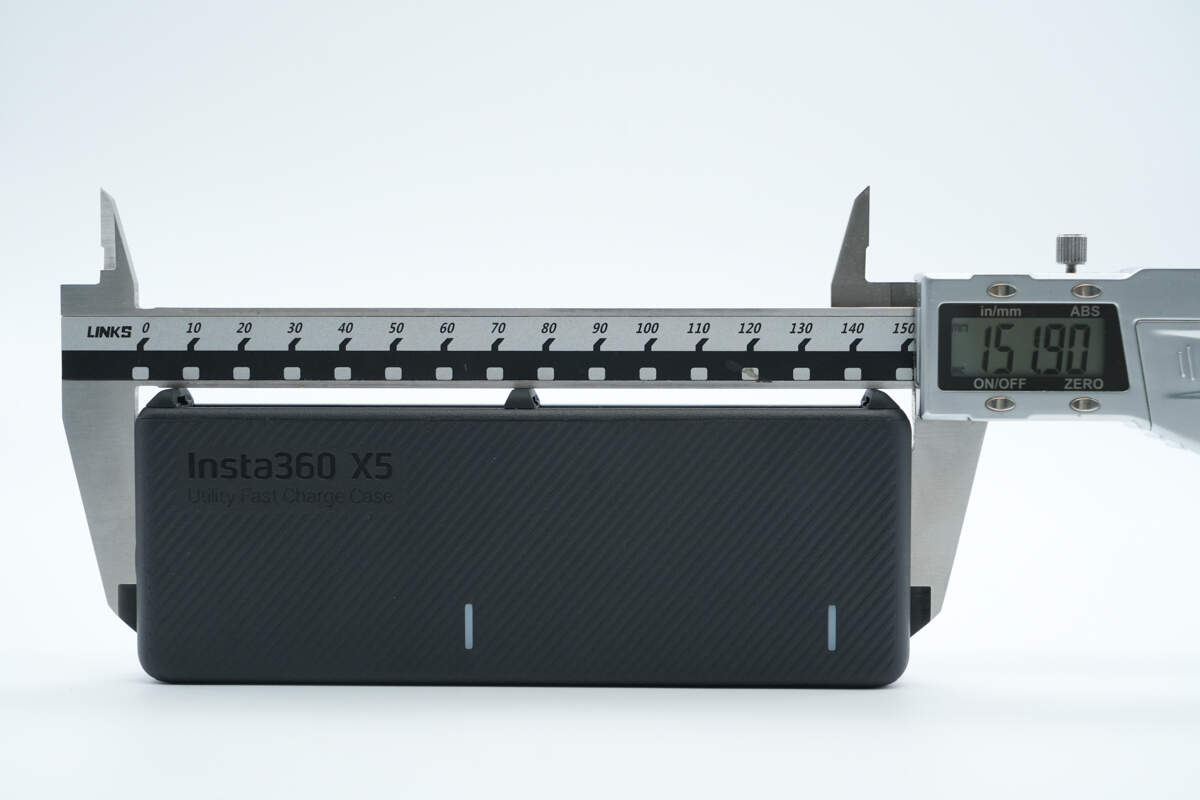
The length is about 151.9 mm (5.98 inches).
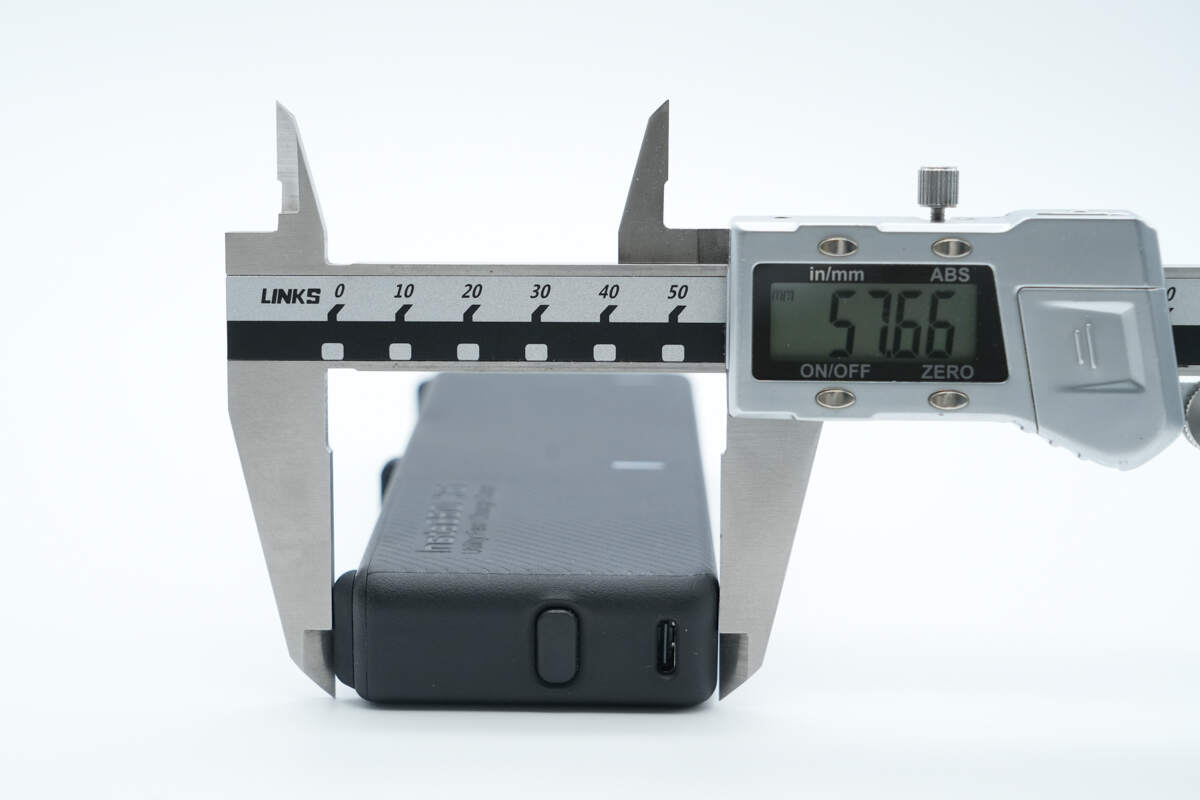
The width is about 57.66 mm (2.27 inches).
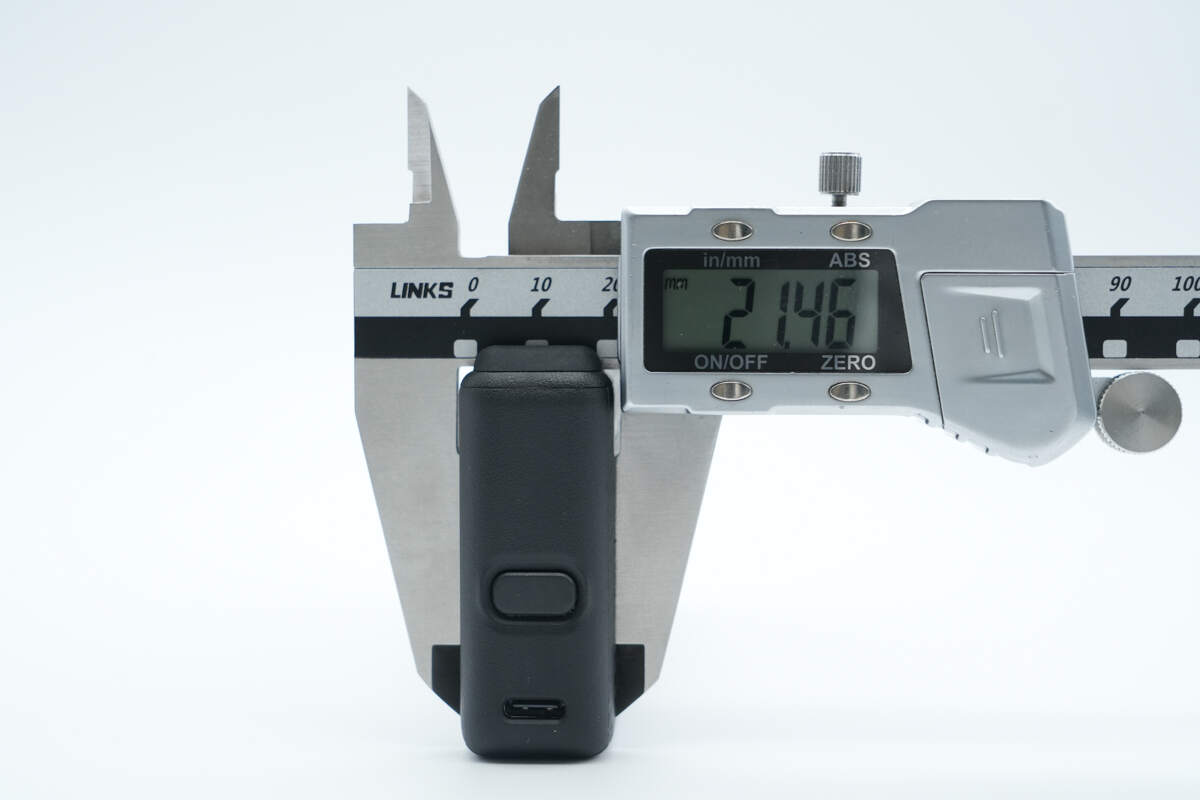
The thickness is about 21.46 mm (0.84 inches).
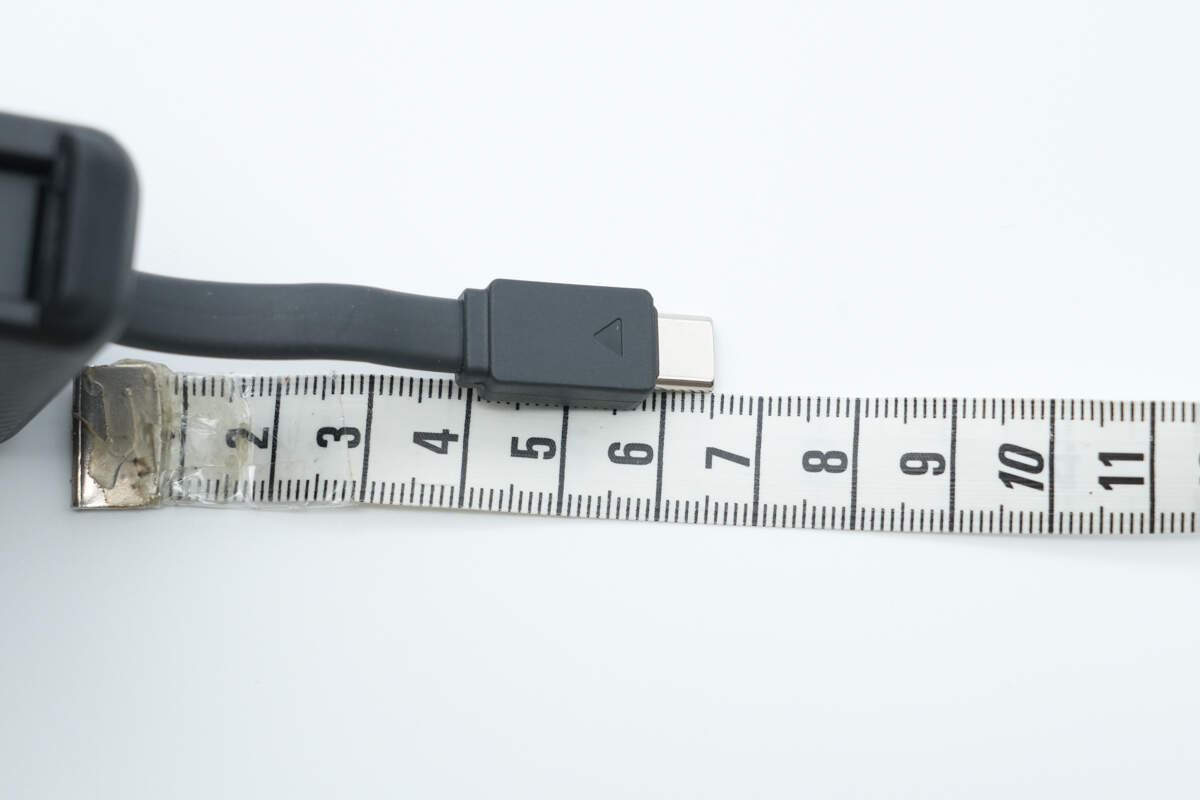
The length of the cable is about 6.5 cm (2.56 inches).
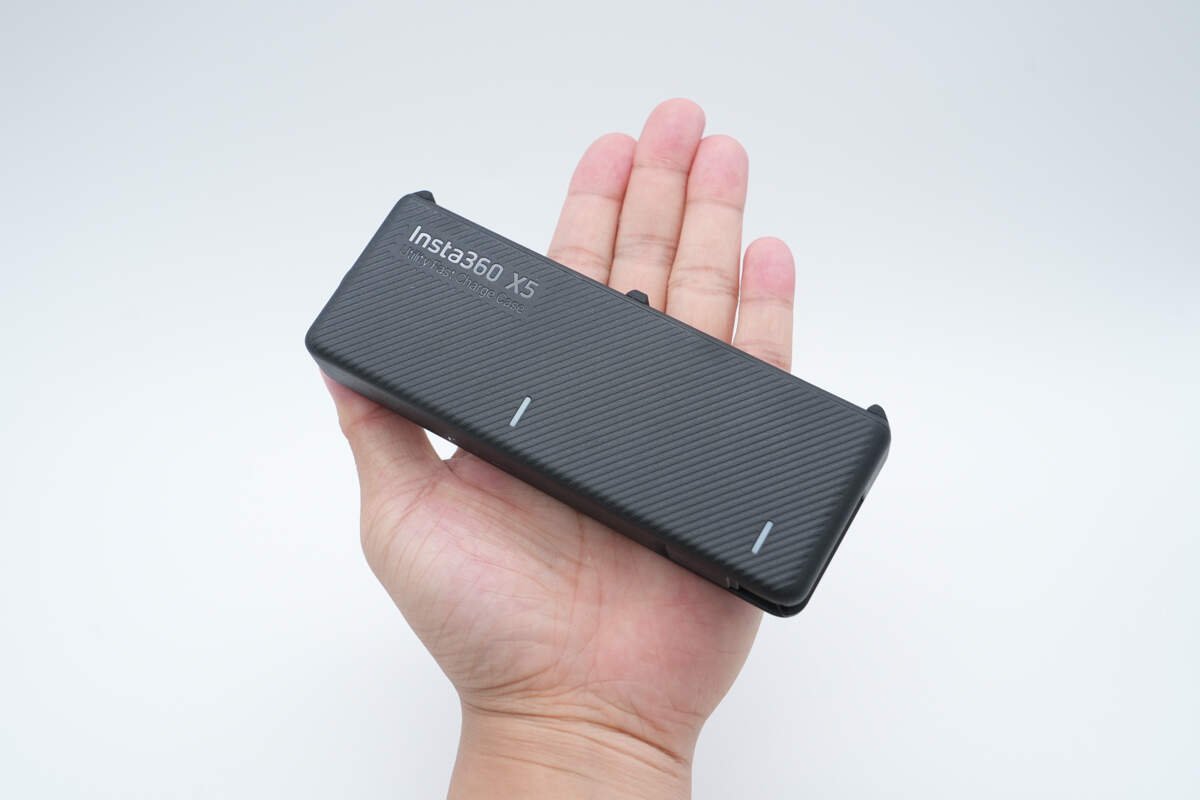
That's how big it is in the hand.
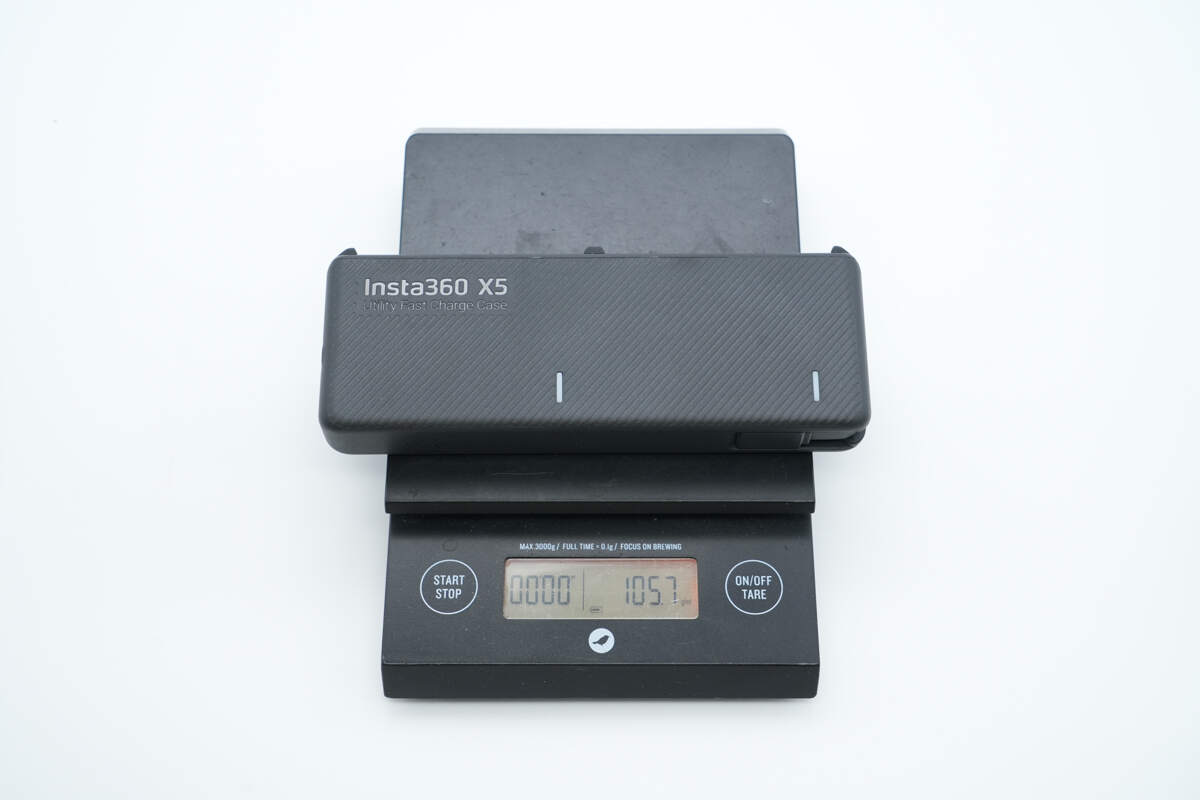
The weight is about 106 g (3.74 oz).
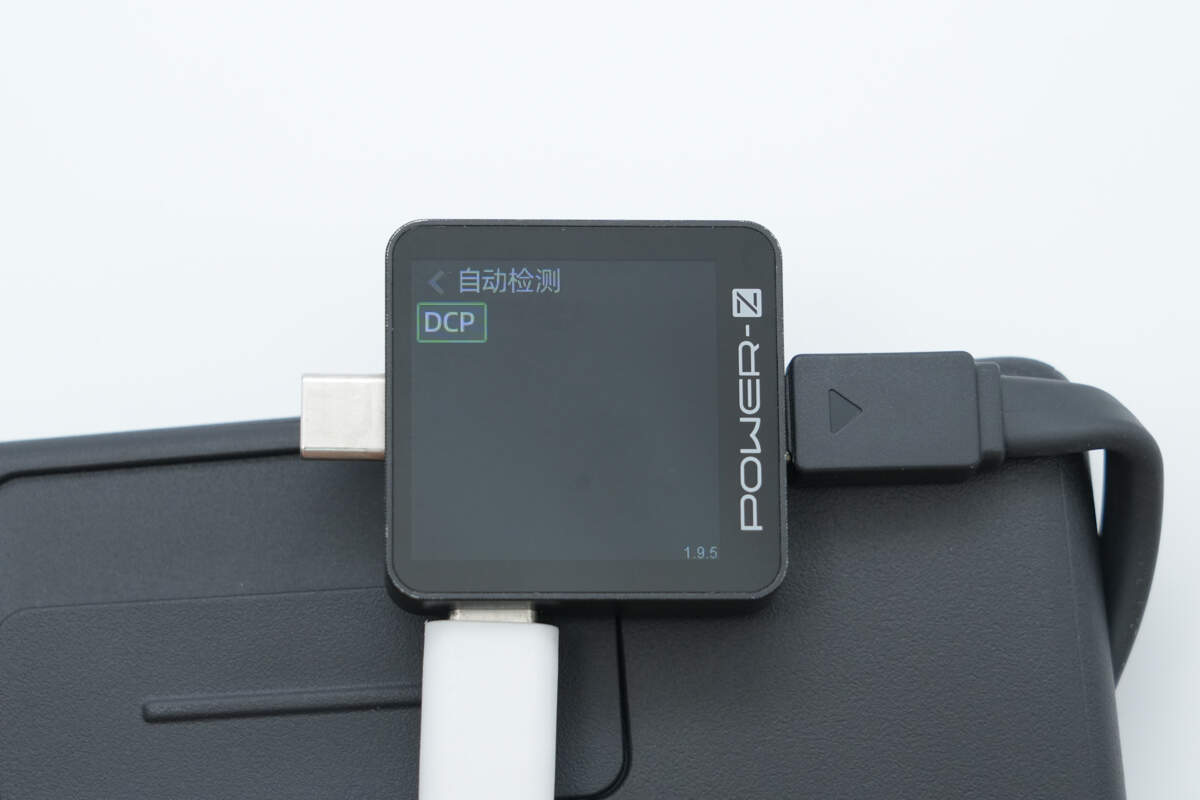
ChargerLAB POWER-Z KM003C shows that the cable supports the DCP charging protocol.
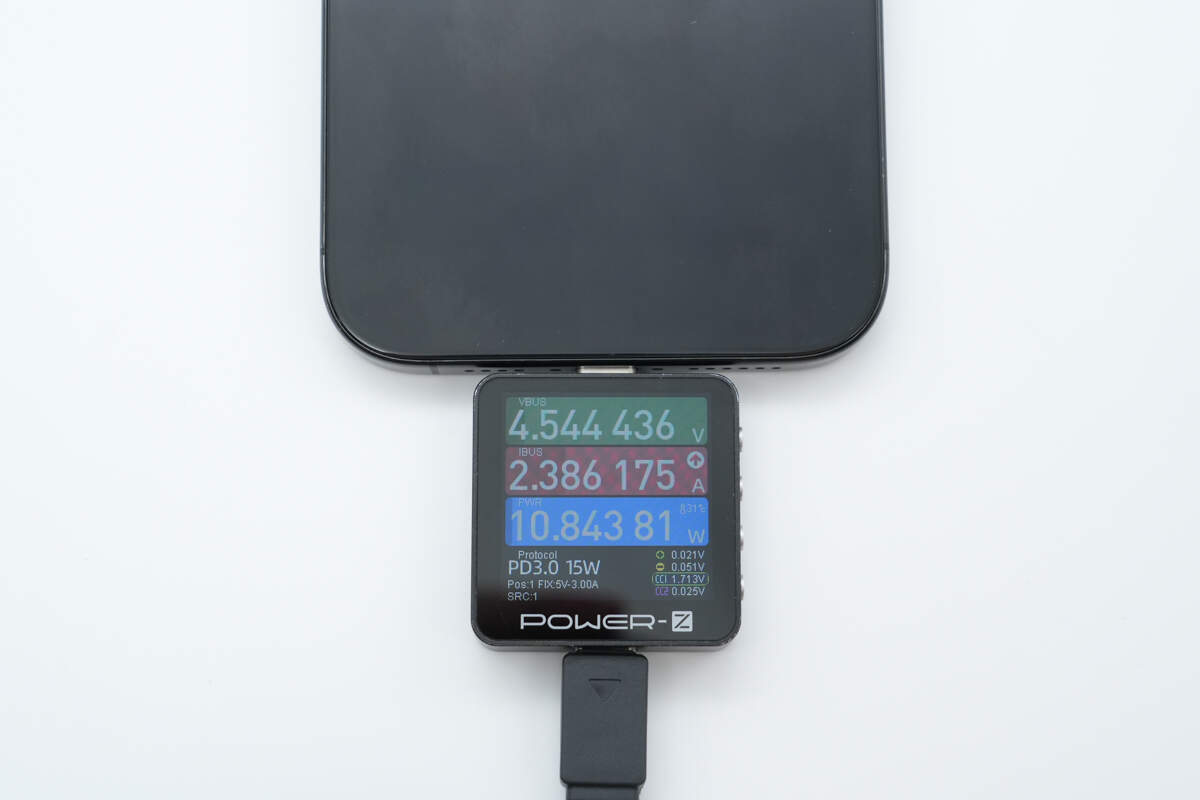
When charging the Apple iPhone 15 Pro Max, the power is about 10.84W.
Teardown
Next, let's take it apart to see its internal components and structure.
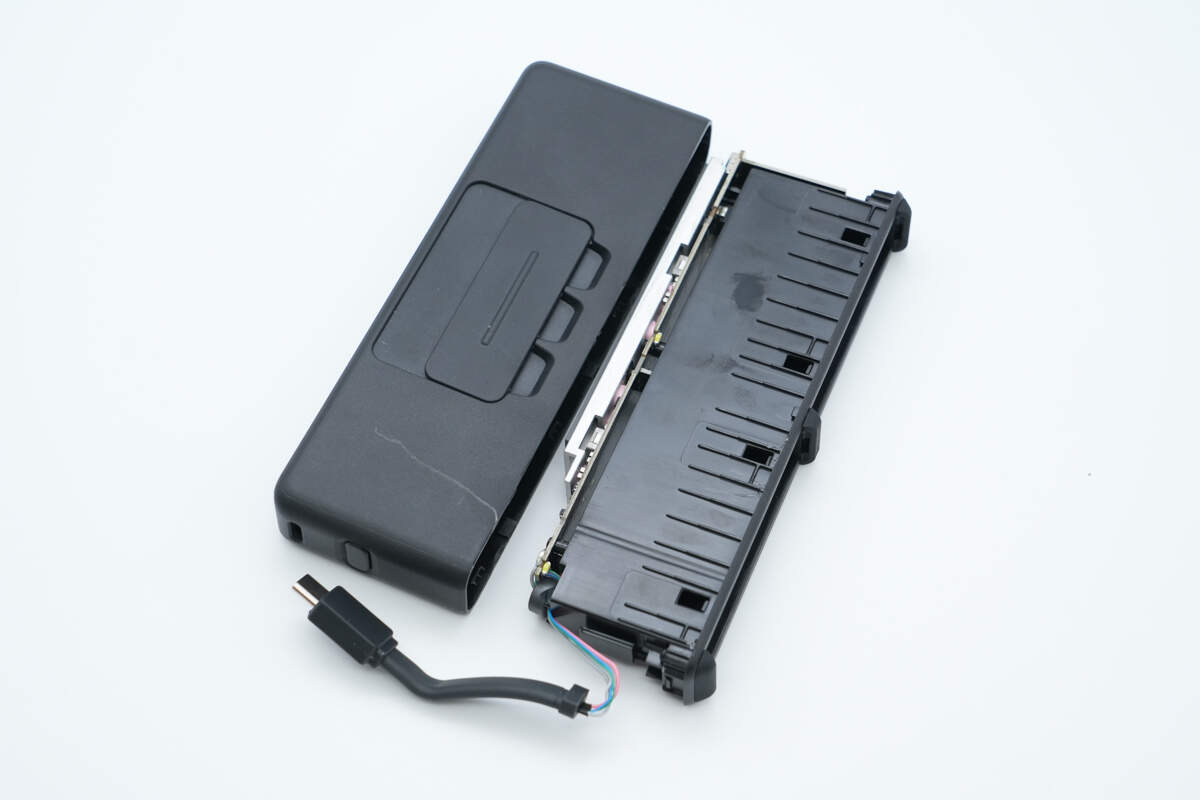
It uses a double-layer casing, secured together with clips.
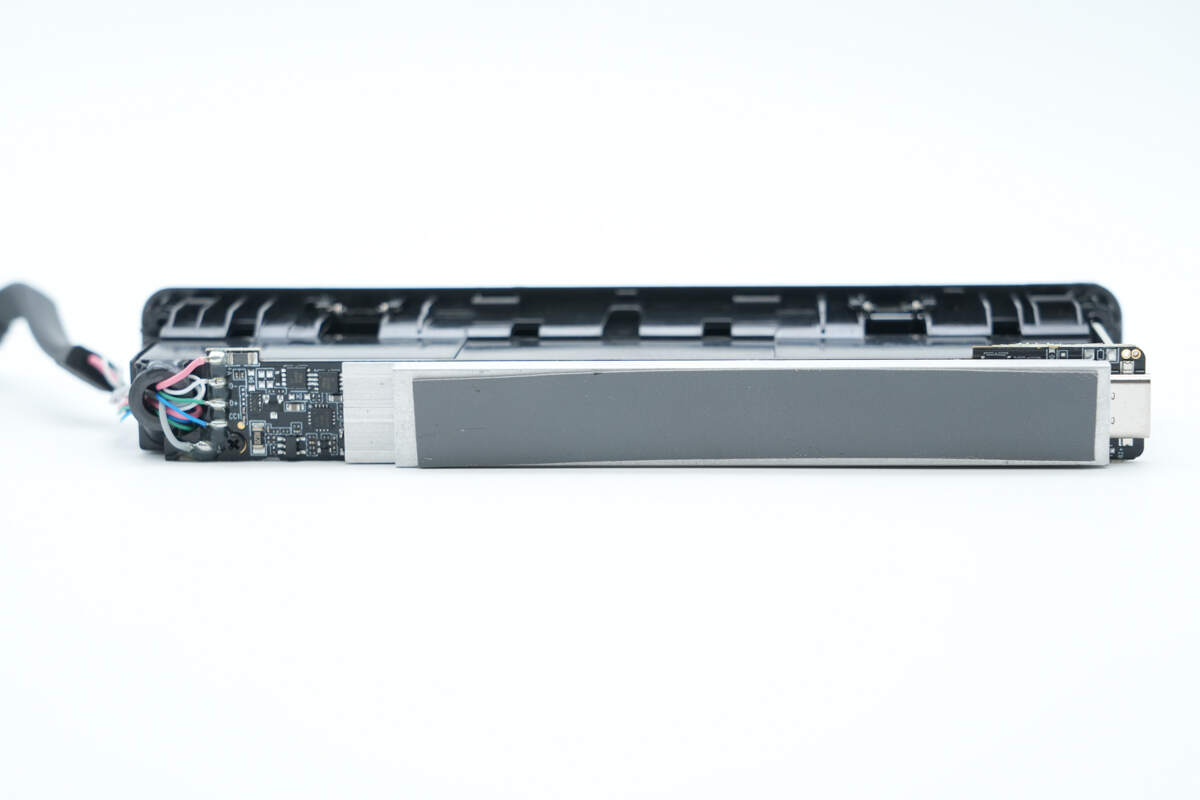
At the bottom, there is a PCB covered by an aluminum plate and a thermal pad.
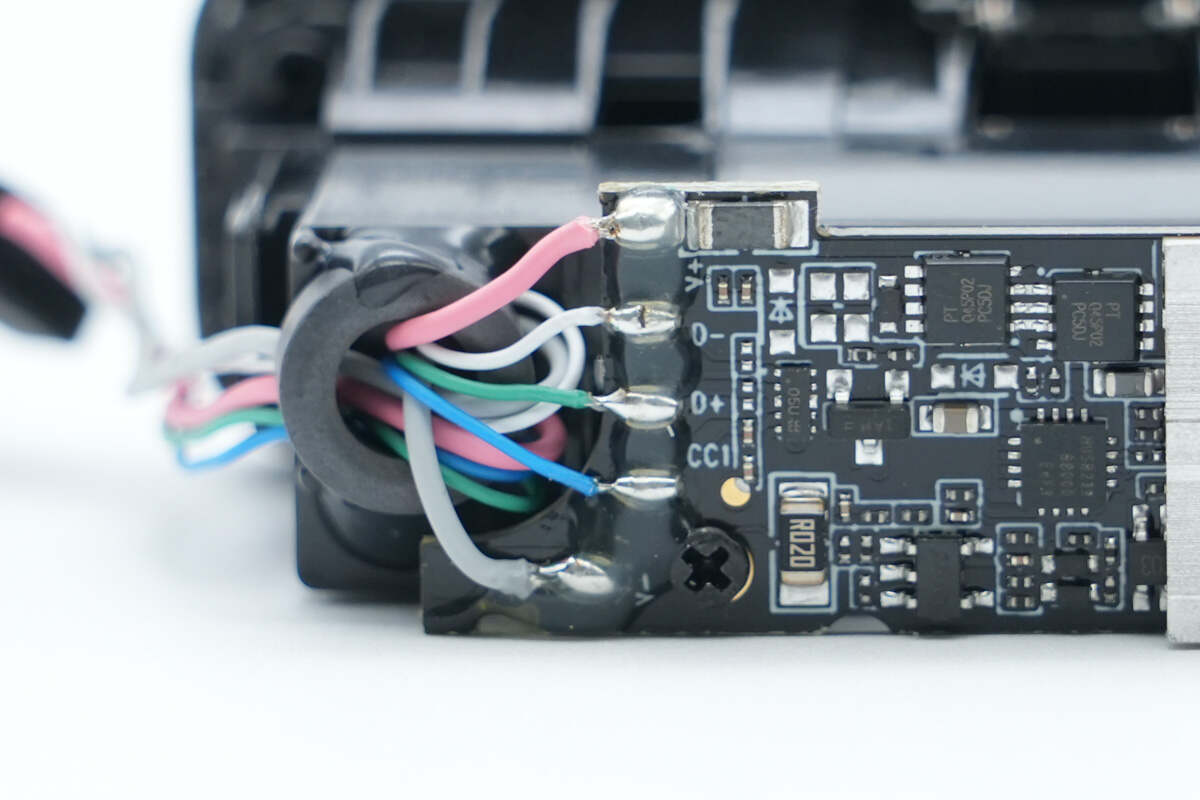
The PCB is secured with screws. The USB-C cable is equipped with an anti-interference ferrite ring, and both the ferrite ring and the cable solder joints are sealed with adhesive.
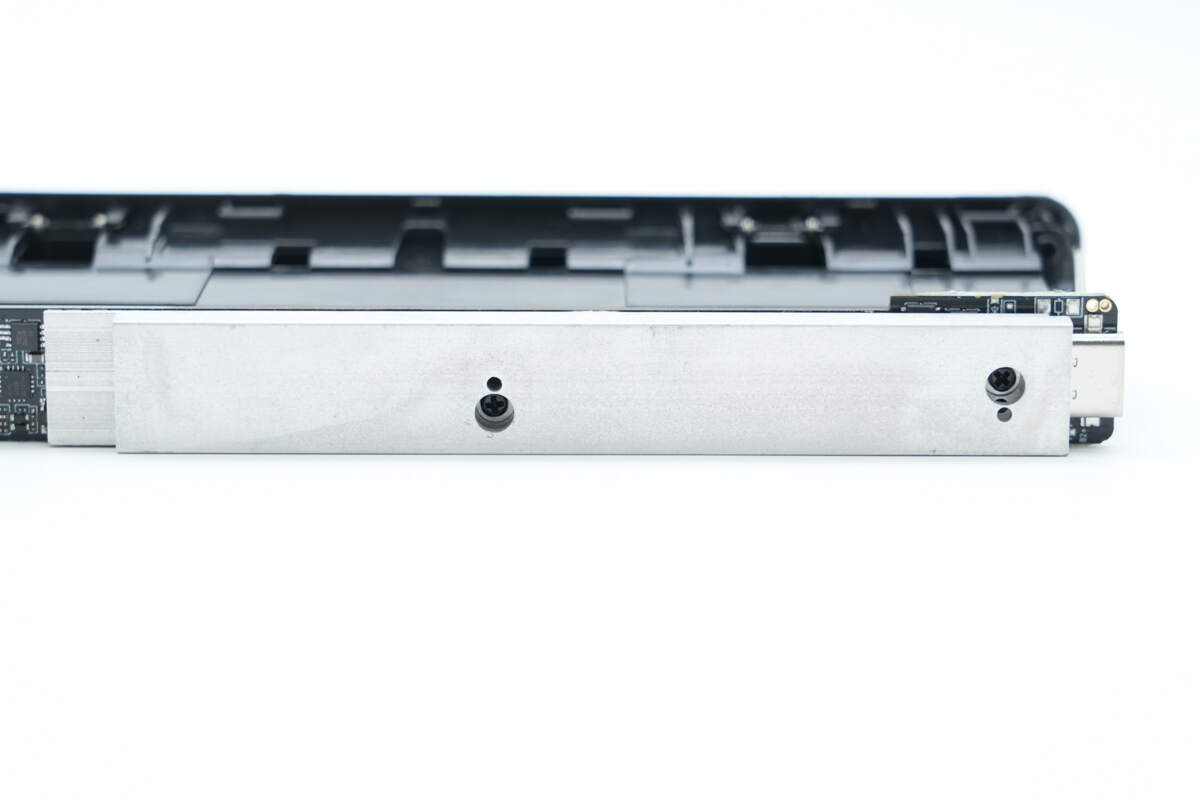
The heat sink is attached to the PCB with screws.
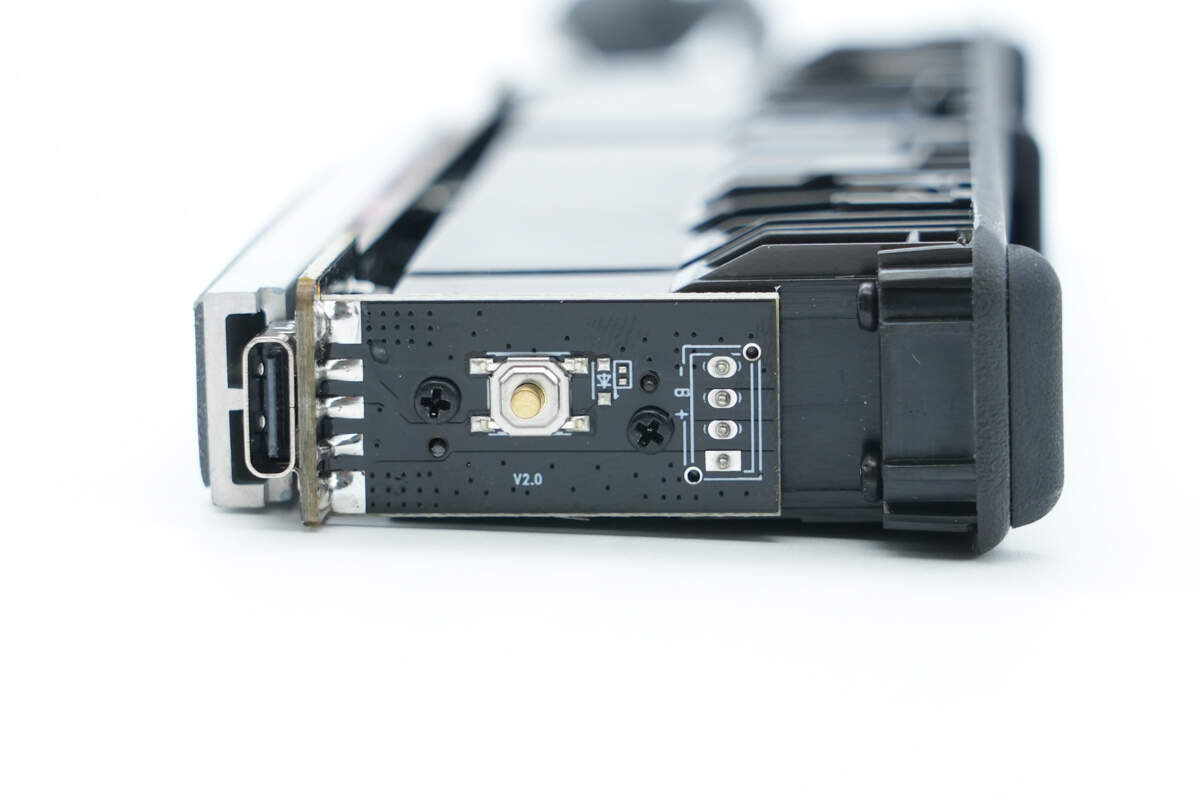
The small PCB on the other end is also secured with screws.
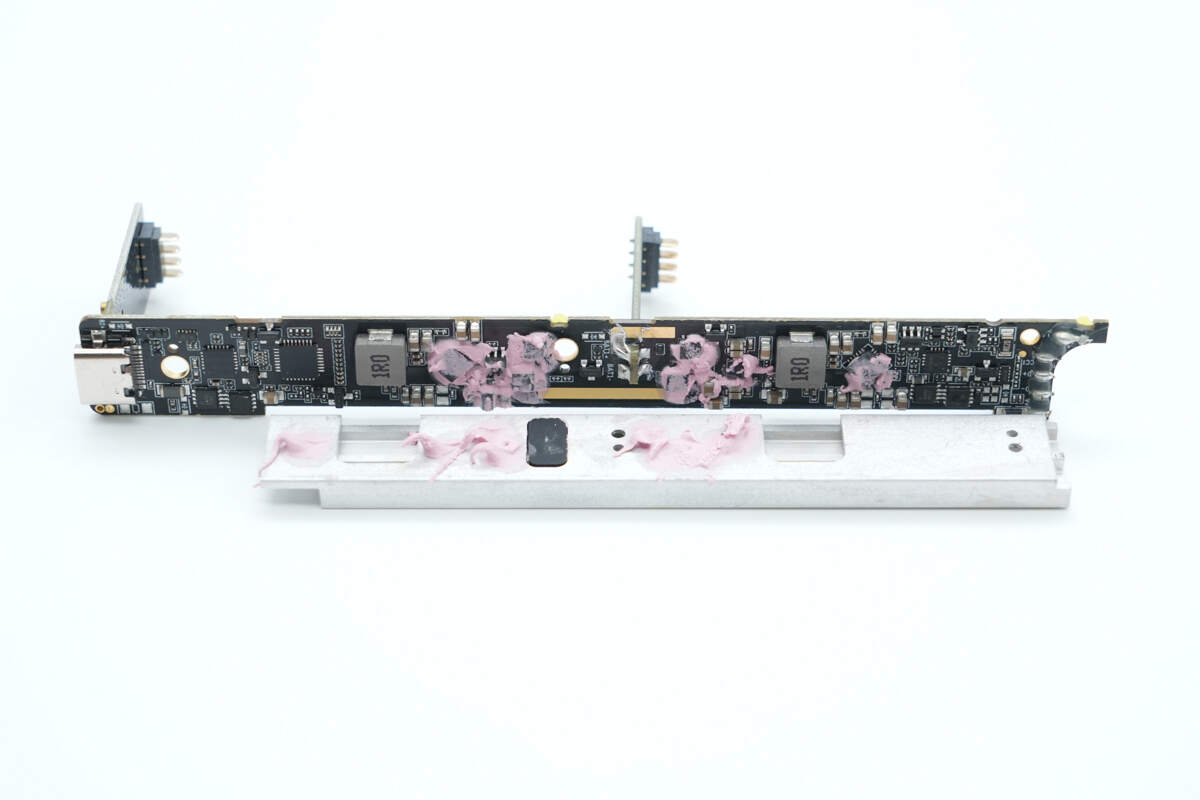
Remove the PCB and heat sink; the pink thermal gel was filled between the two.
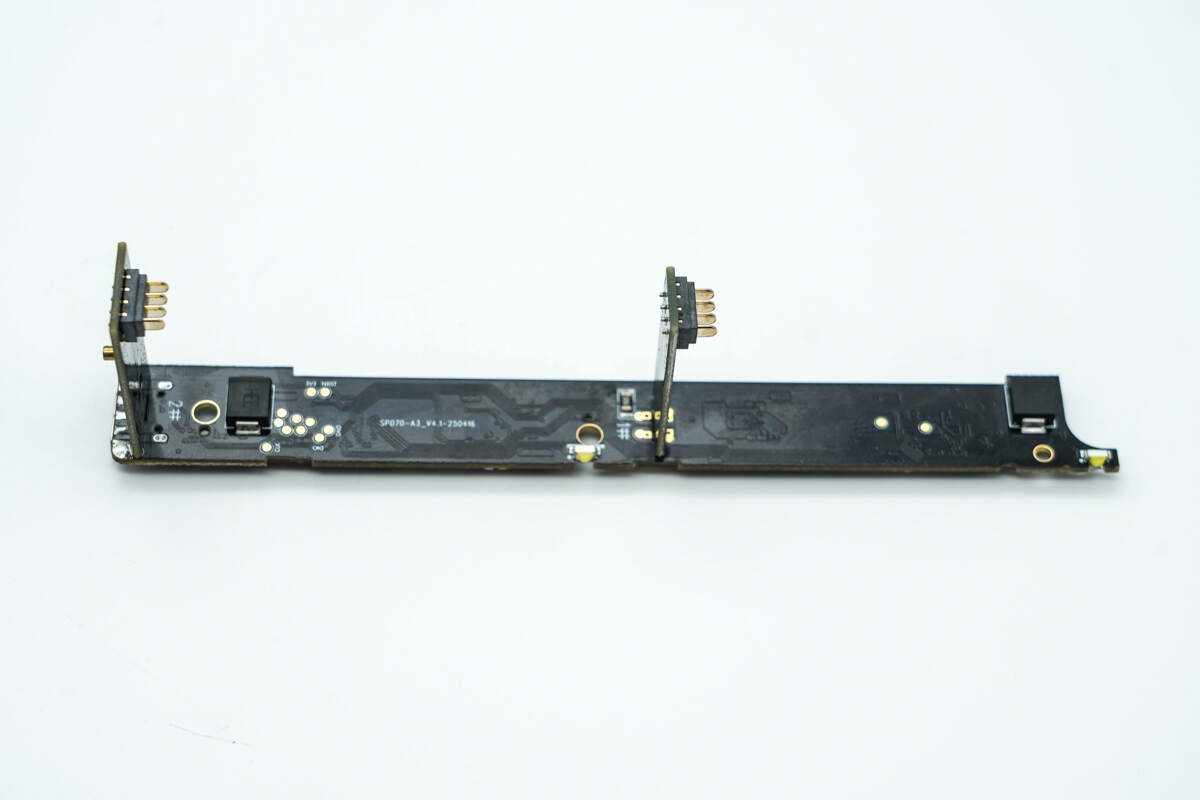
Two small PCBs with charging contacts are soldered to the front of the main PCB. There are also two unidirectional TVS transient voltage suppression diodes.
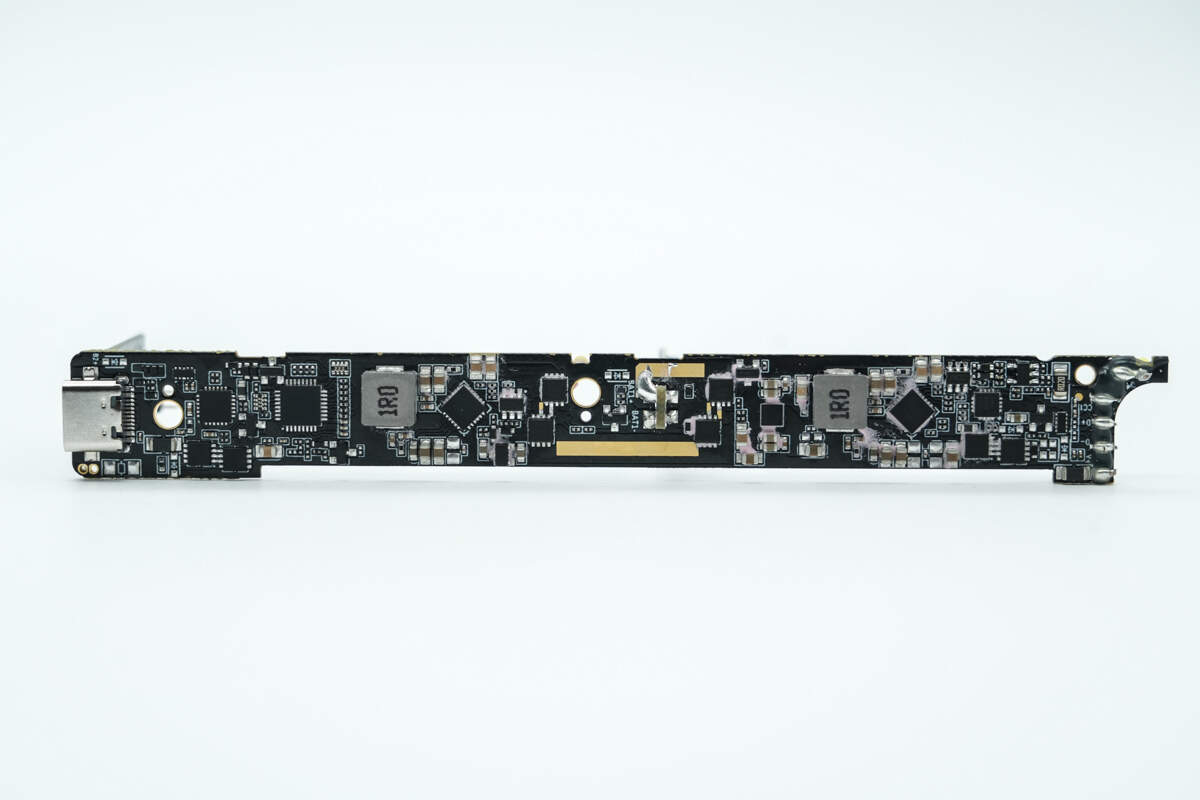
On the back, there are components including the controller chip for the USB-C port and cable, as well as the charging management chips for the two batteries.
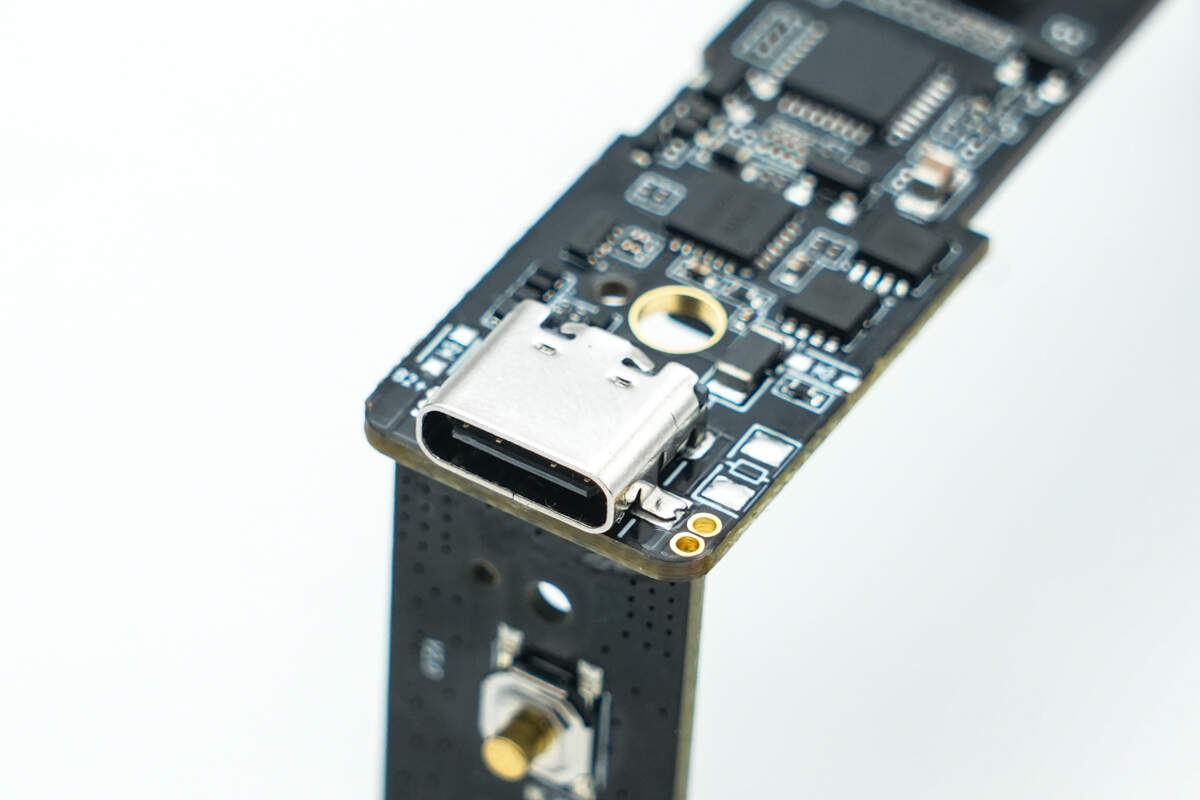
The USB-C socket uses through-hole soldering.
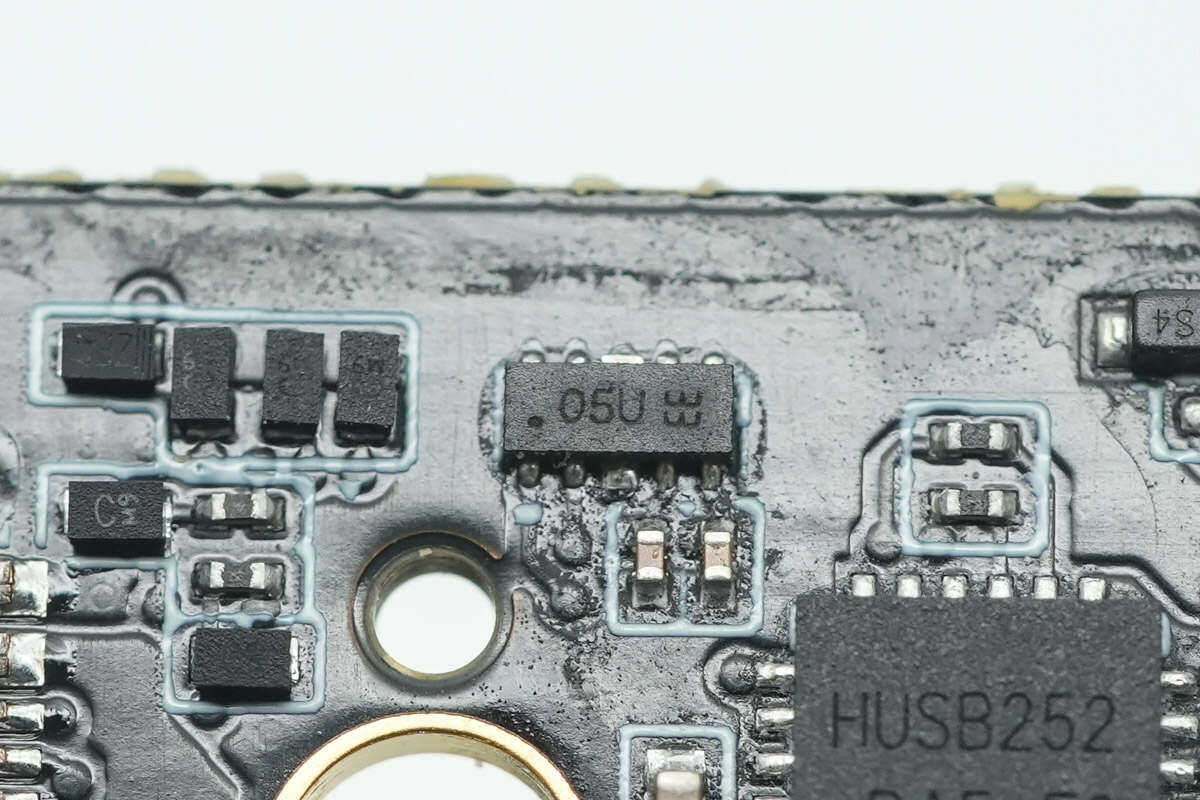
The TVS diode is used for electrostatic protection at the input end.
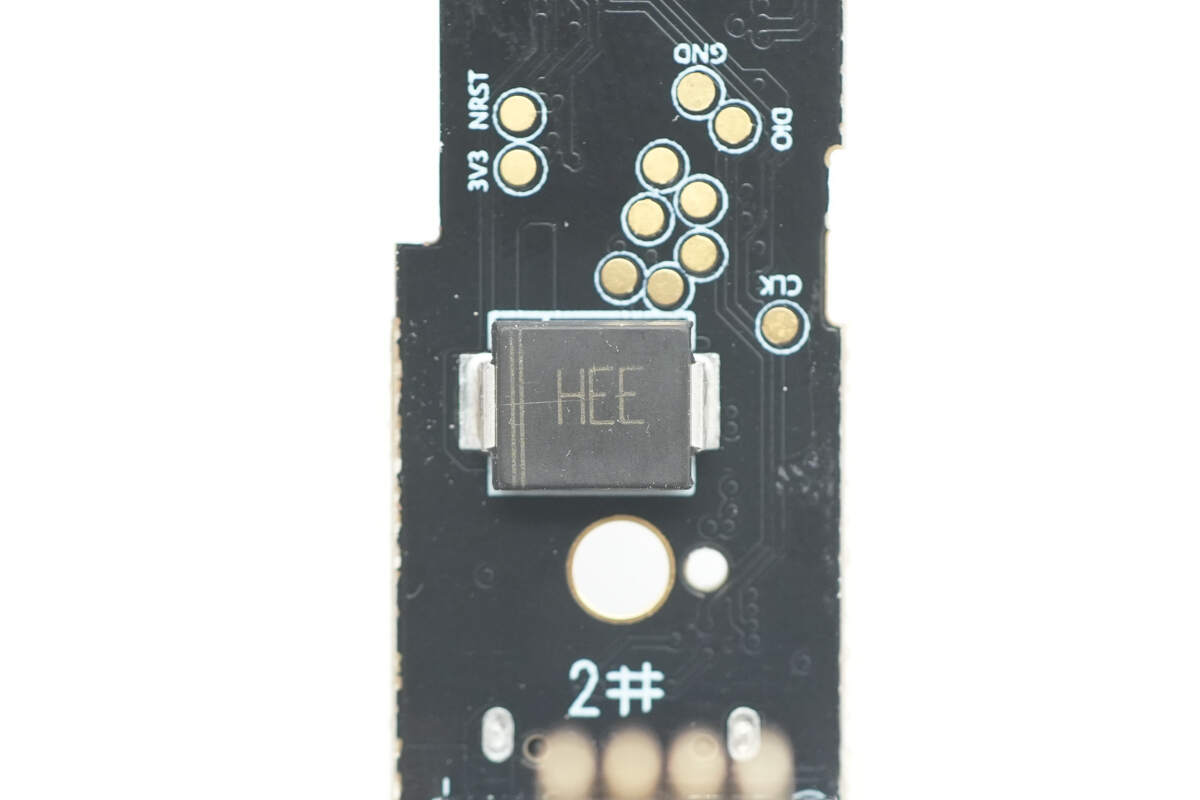
The unidirectional TVS transient voltage suppression diode is marked with "HEE".
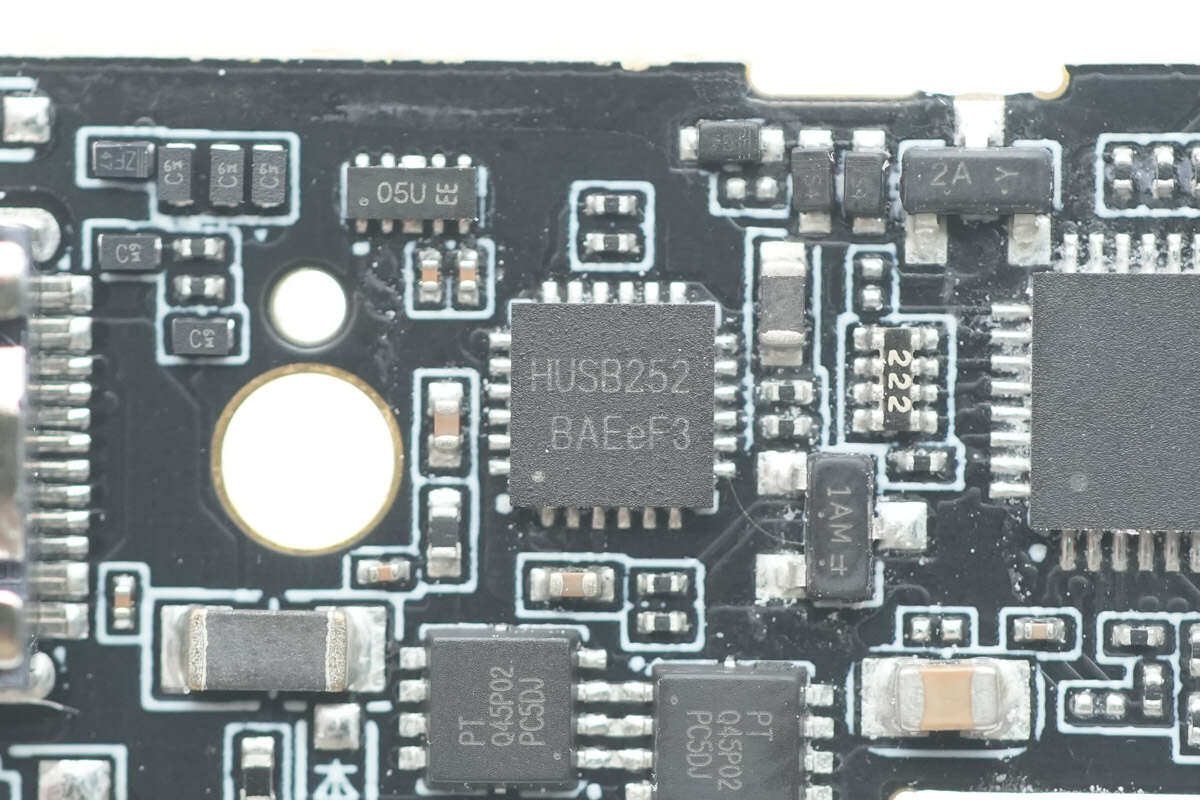
The USB-C port controller is from Hynetek, model HUSB252. This is a highly integrated chip designed specifically for USB Type-C DRP applications. It is fully compliant with the USB PD 3.2 V1.1 specification and supports PPS and multiple programmable PDOs, meeting the fast-charging needs of various devices.
It integrates a complete DPDM charging protocol stack, intelligently identifying and supporting a wide range of fast charging protocols including QC2.0, QC3.0, QC3+, AFC, FCP, SCP, UFCS, and divider 3 mode. This ensures broad compatibility with both older and newer devices.
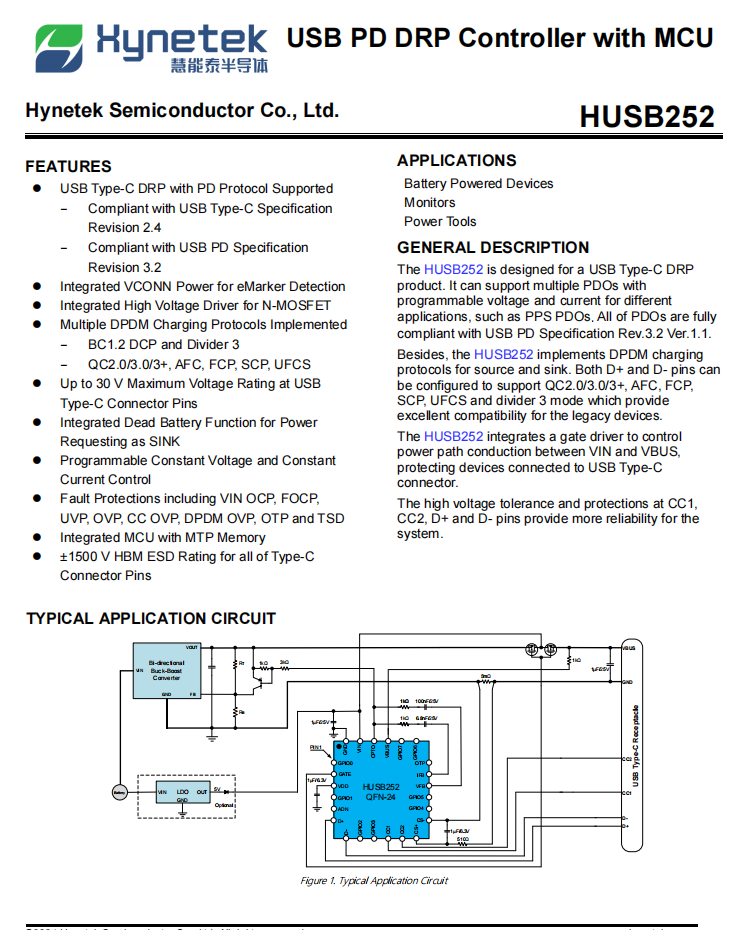
The built-in gate driver precisely controls the power path conduction from VIN to VBUS. Combined with the high-voltage tolerance design of the CC1, CC2, D+, and D- pins and multiple protection mechanisms, it provides a safe and reliable charging solution for the Type-C interface, fully ensuring the safety of connected devices.
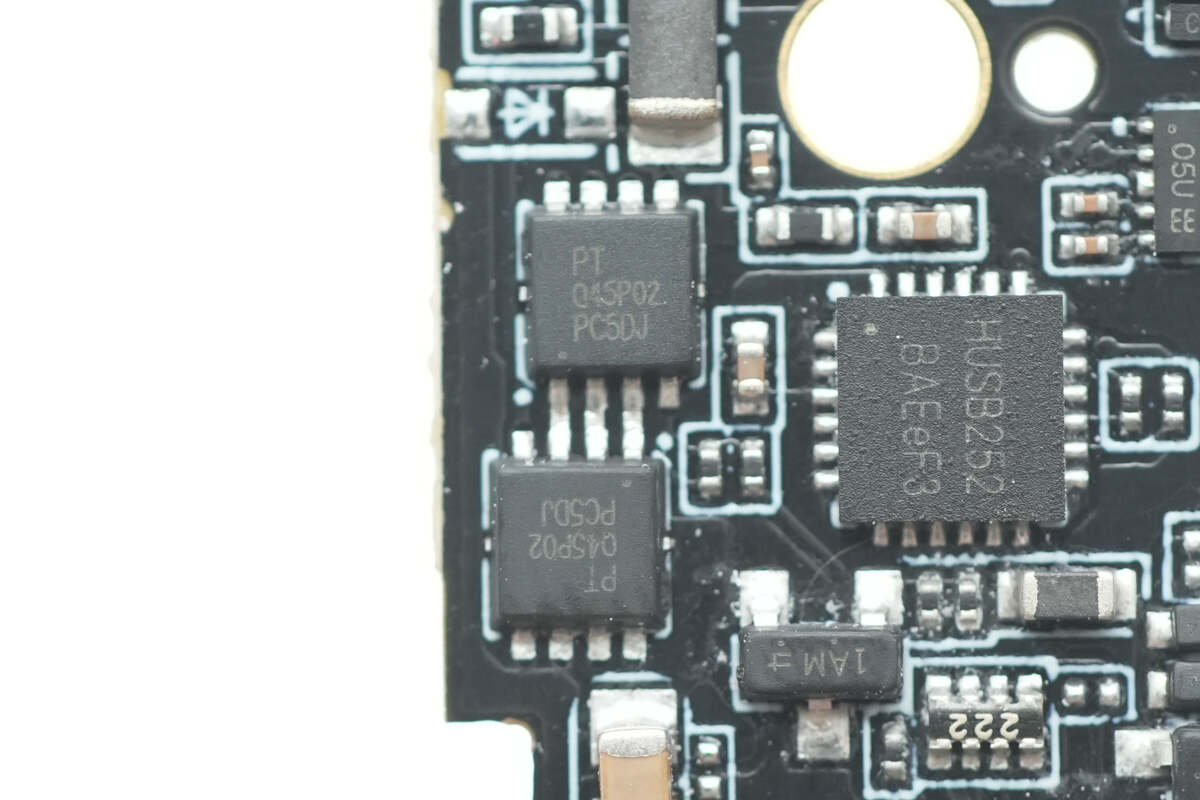
The MOSFET used for power control on the USB-C input interface is from Puolop, model PTQ45P02. It is a PMOSFET with a voltage rating of -20V and an on-resistance of 9mΩ, packaged in a PDFN3333 package.
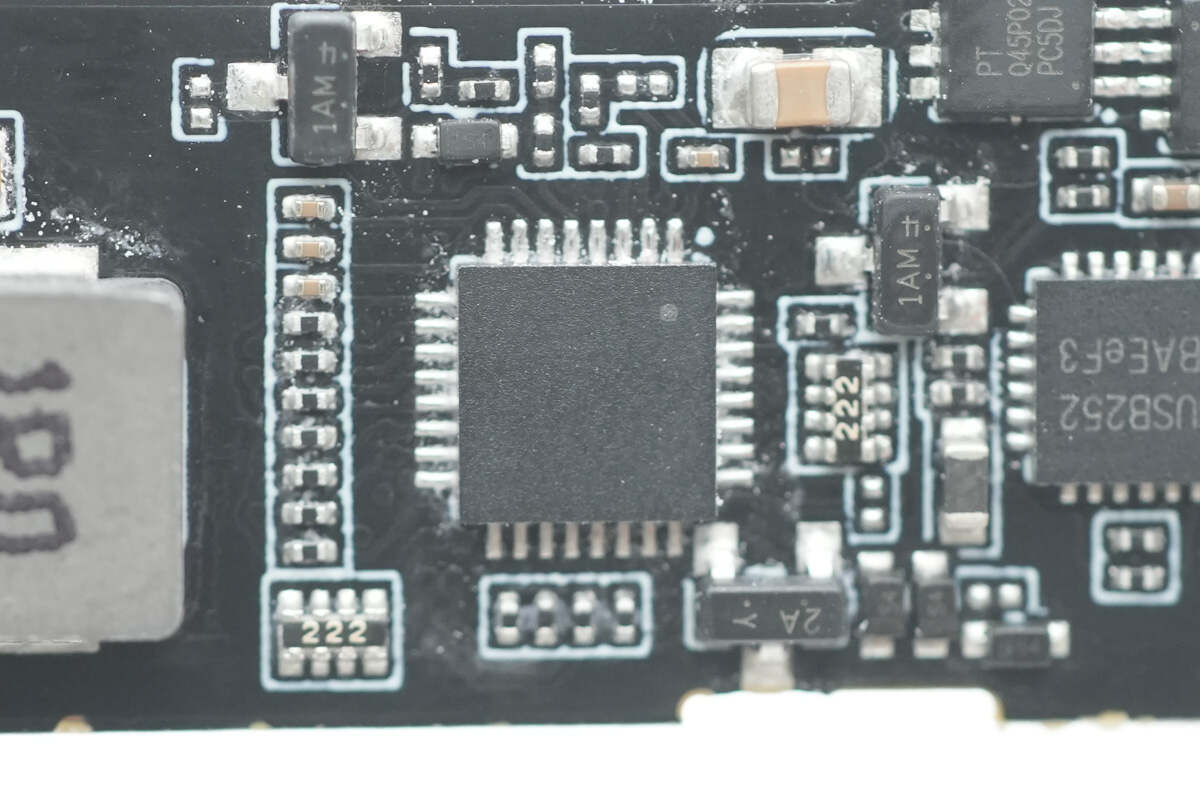
There is an unmarked chip whose details are unknown.
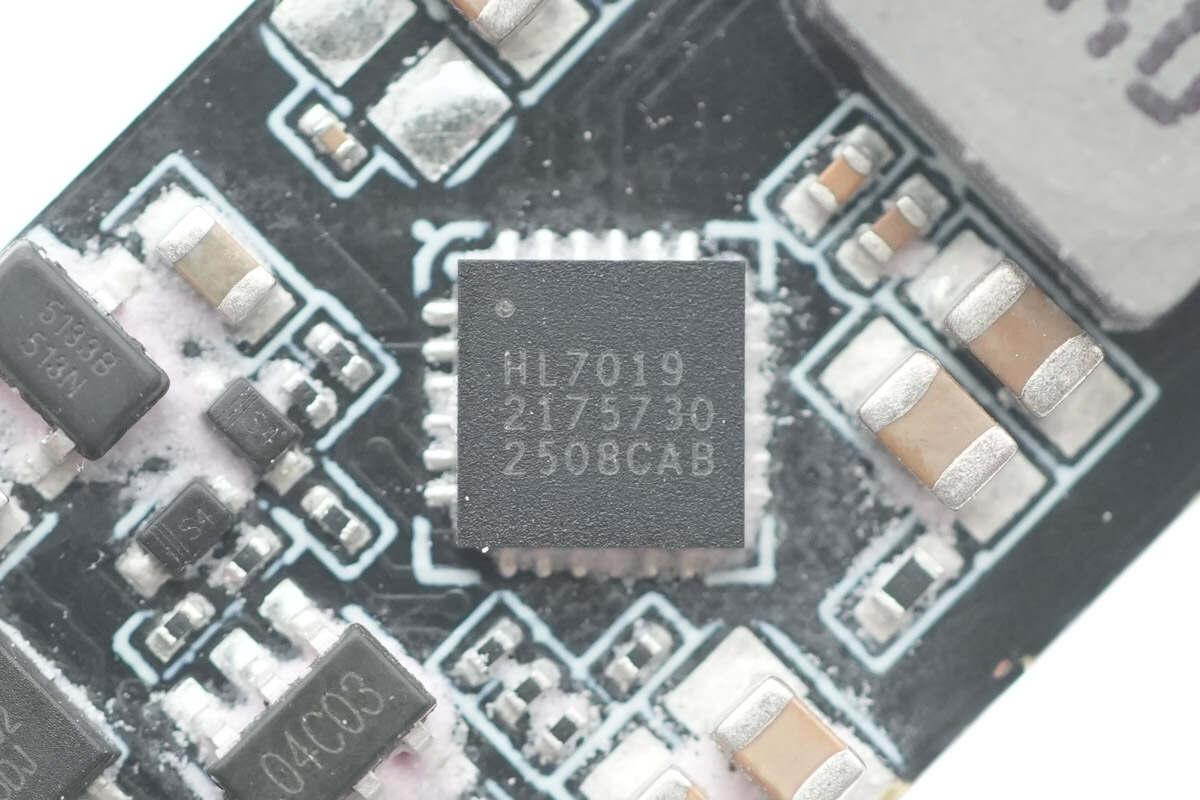
The Halo HL7019 is a highly integrated switching-mode lithium-ion battery management chip. It features built-in power MOSFETs, power path management, an I²C interface, and USB OTG boost functionality. This device is suitable for single-cell or multiple parallel lithium-ion/lithium polymer batteries and is widely used in smartphones, tablets, power banks, and other portable devices.
Its switching architecture, combined with a low-resistance power path design, maximizes charging, discharging, and boost efficiency. This effectively reduces battery charging time and extends battery life during discharge.
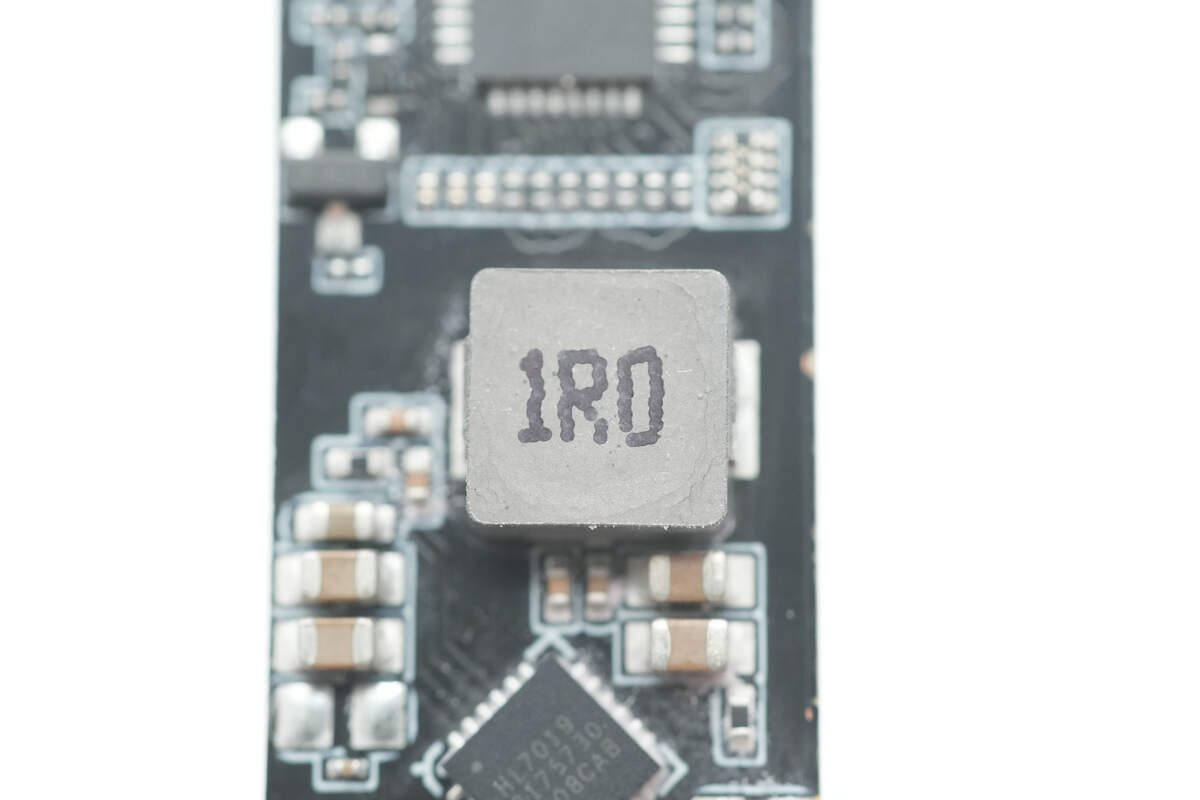
Close-up of the 1μH alloy inductor.
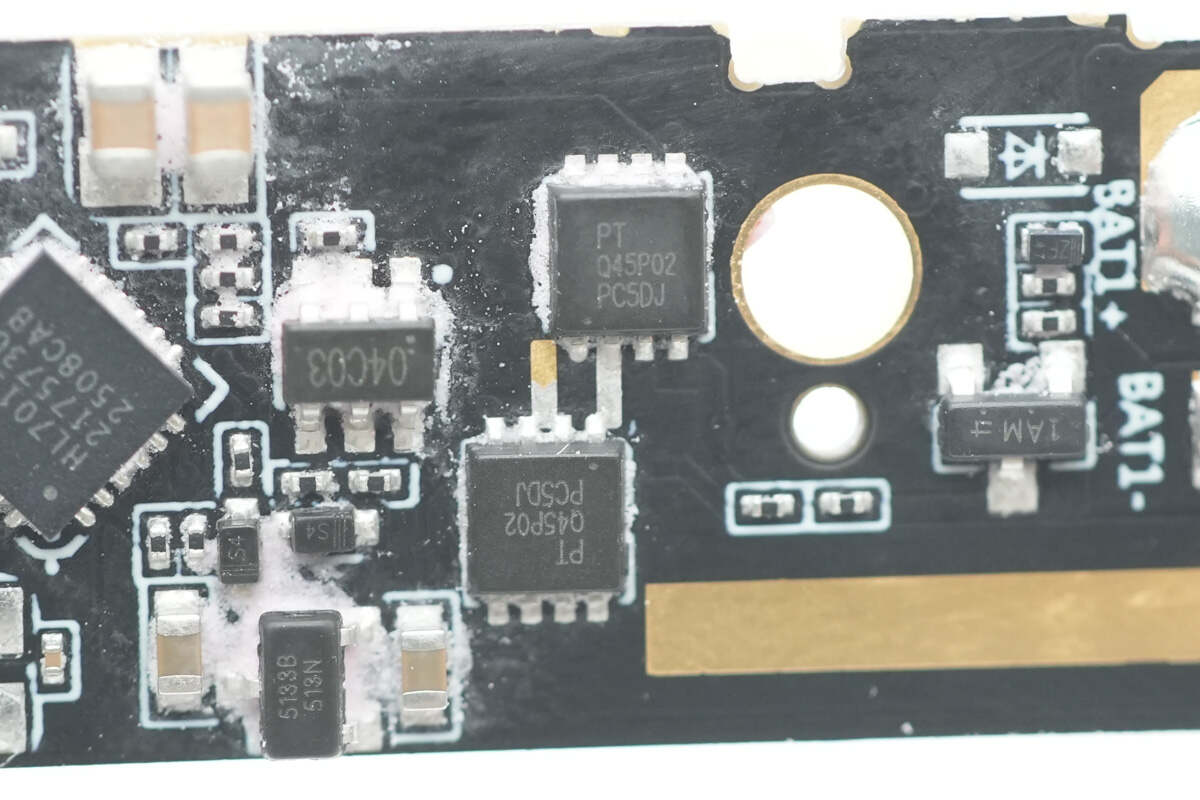
The MOSFET used for battery charging control is also a Puolop PTQ45P02.
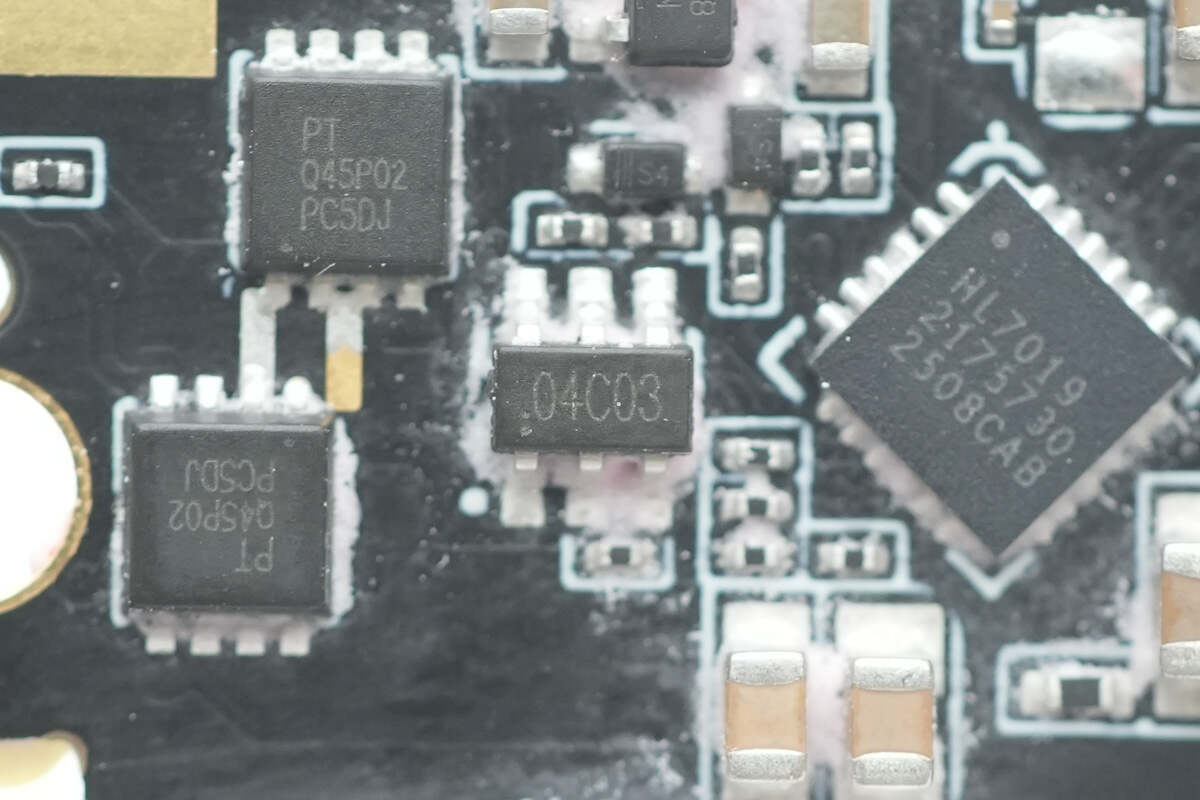
Close-up of a chip marked with "04C03".
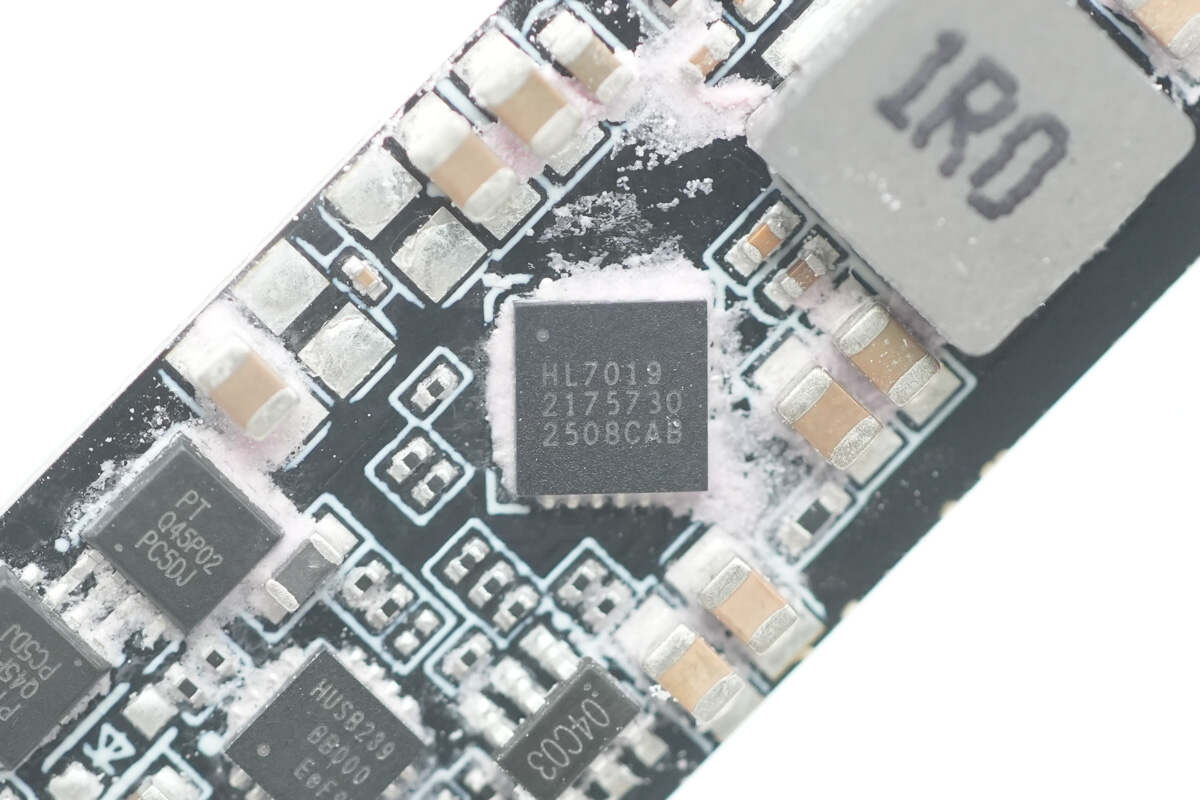
The charging management chip for the other battery is also a Halo HL7019.
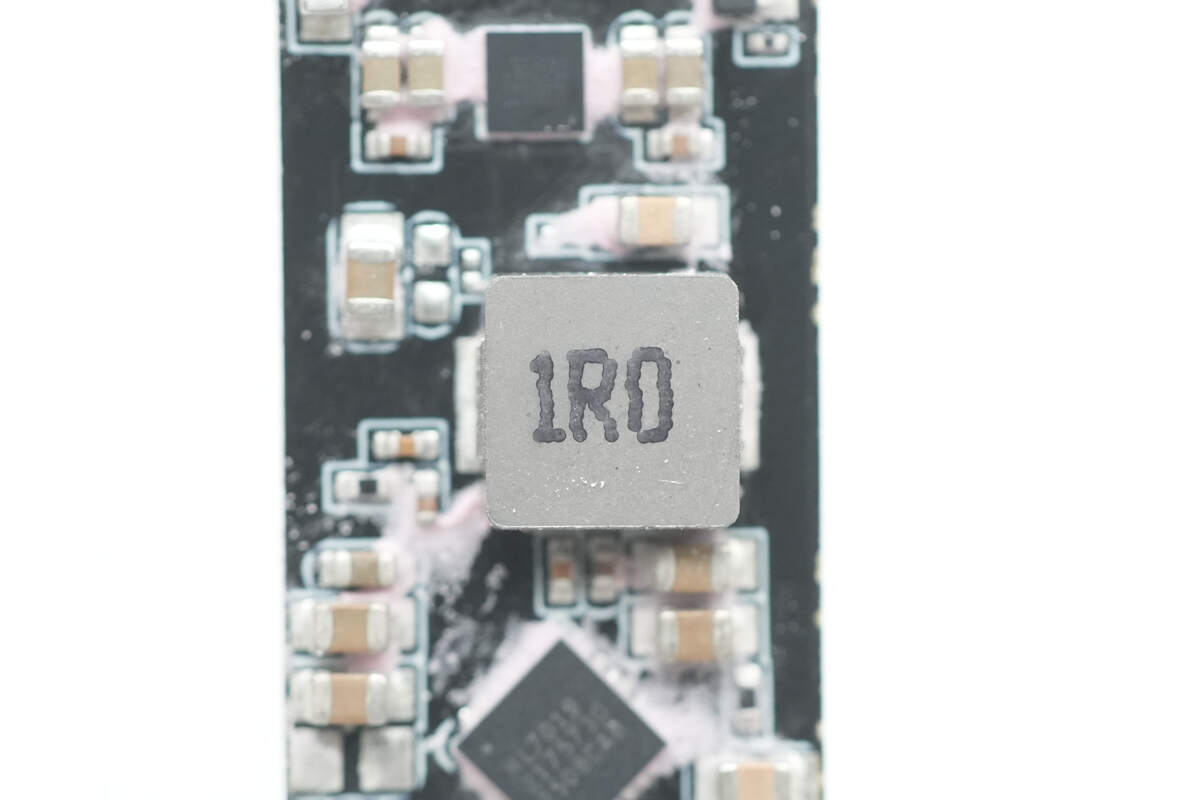
Close-up of the 1μH alloy inductor.
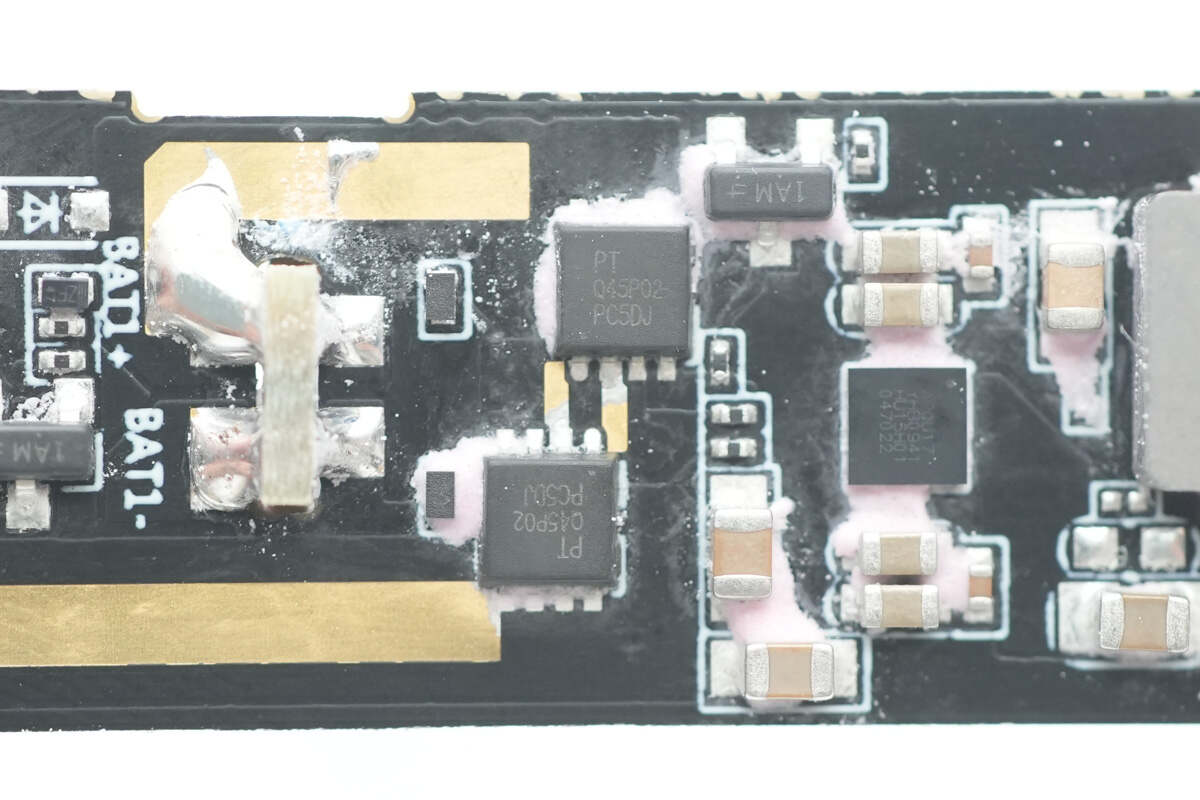
The other set of battery charging control MOSFETs also uses Puolop PTQ45P02.
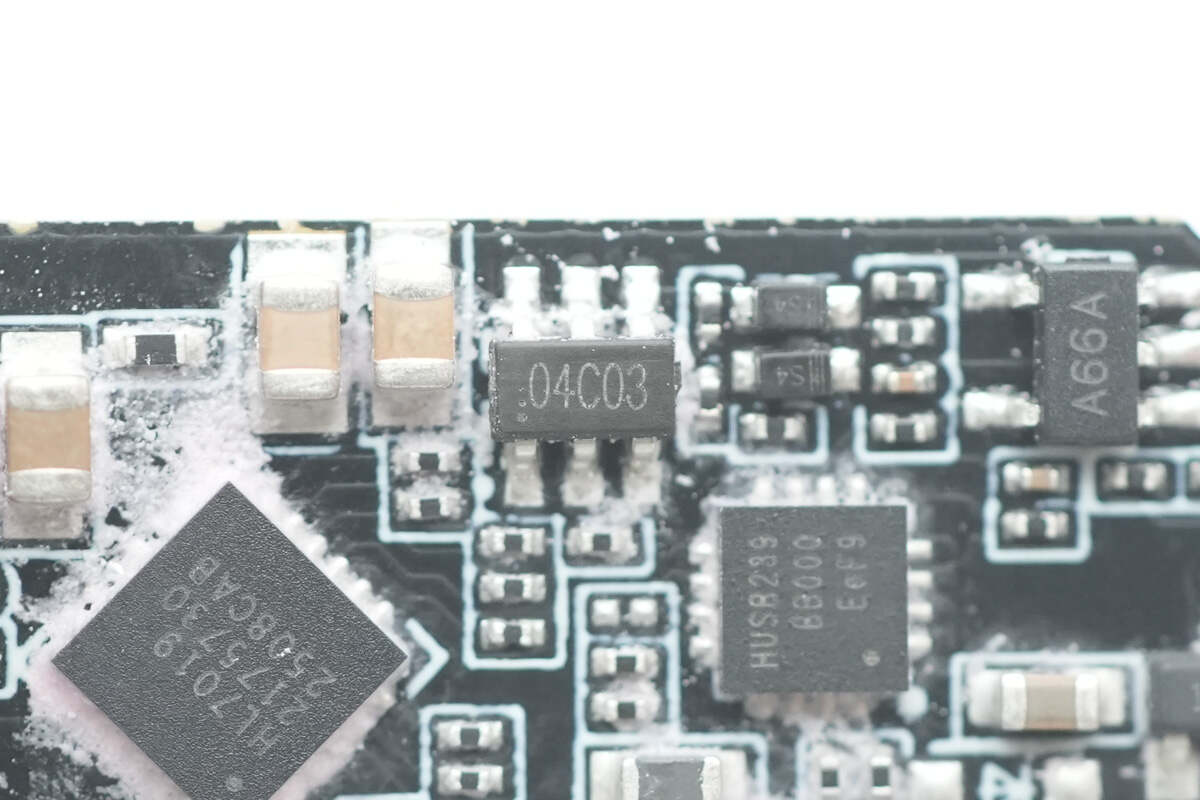
Close-up of a chip marked with "04CO3".
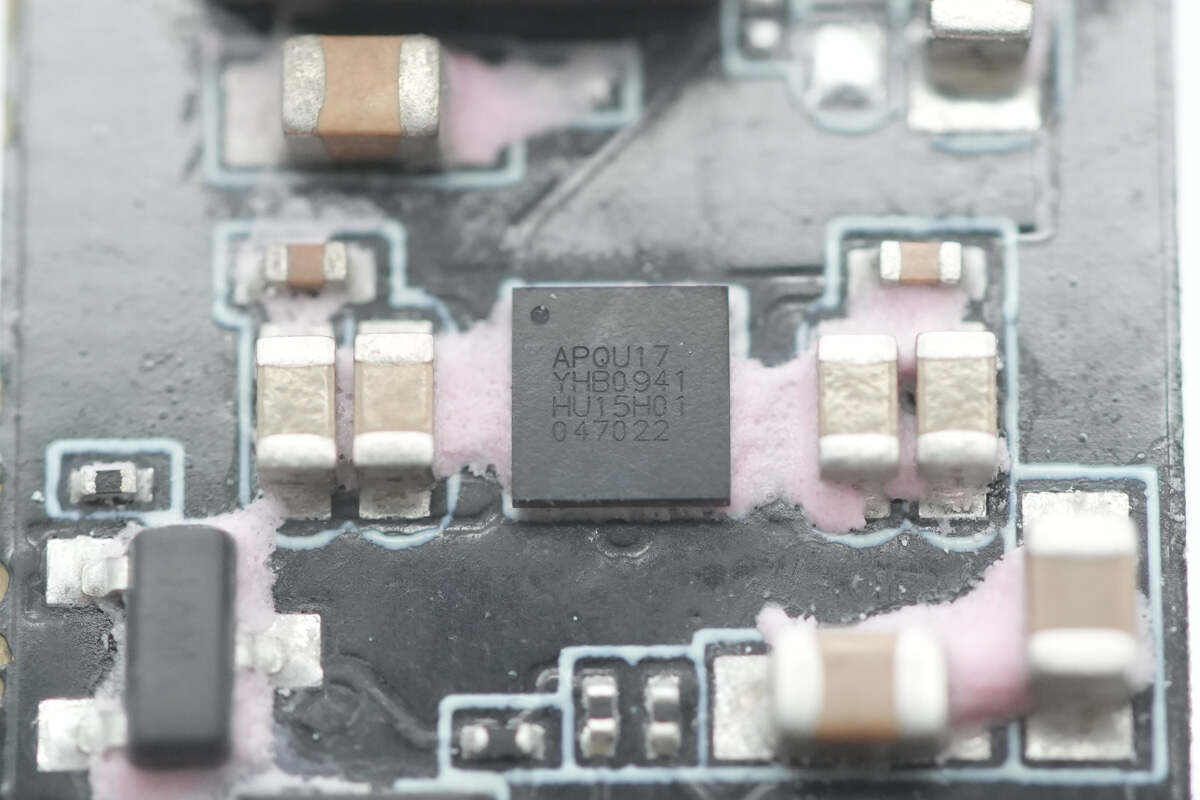
Close-up of a chip marked with "APQU17".
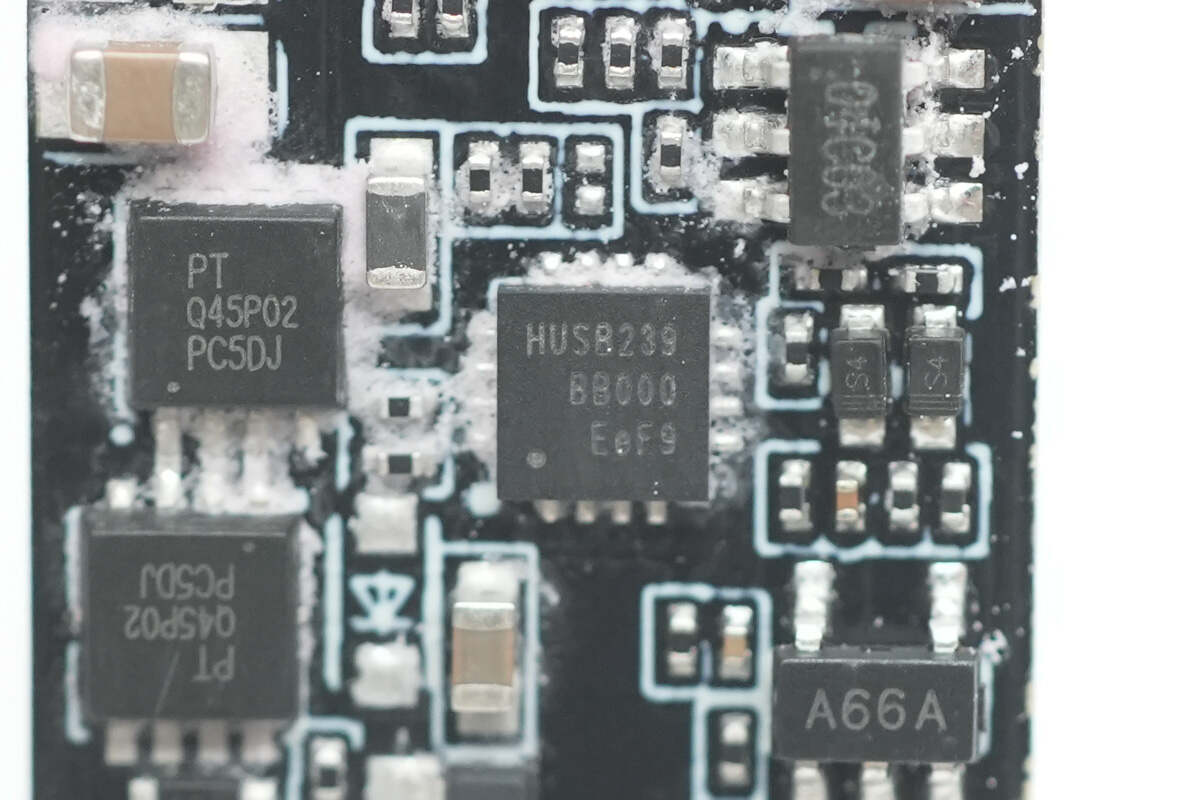
The USB-C output cable controller is also from Hynetek, model HUSB239. This is a highly integrated standalone USB Type-C and PD controller chip that can be flexibly configured as a sink or dual-role port DRP.
The HUSB239 integrates CC logic control, USB PD protocol, and legacy protocol support, offering two operation modes: I²C and GPIO. In I²C mode, it supports parameter configuration, status reading, and advanced features like power role swap (PR Swap) and data role swap (DR Swap) via the host interface. It is also compatible with PPS programmable power supply, SPR/EPR adaptive voltage regulation, and supports up to 48V/5A EPR extended power output. In GPIO mode, the power output can be configured up to 28V/3.25A through the VSET/ISET pins.
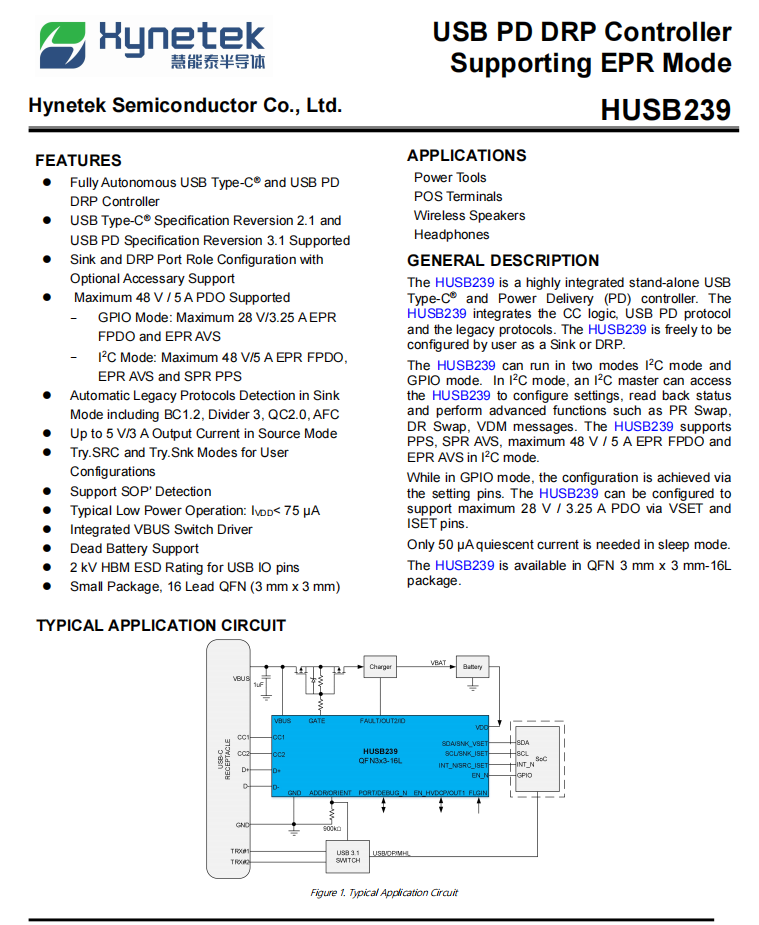
Its sleep mode static current is only 50μA. It comes in a compact QFN 3mm × 3mm-16L package and is widely used in intelligent power management solutions for USB PD fast chargers, power banks, laptops, and other portable devices.
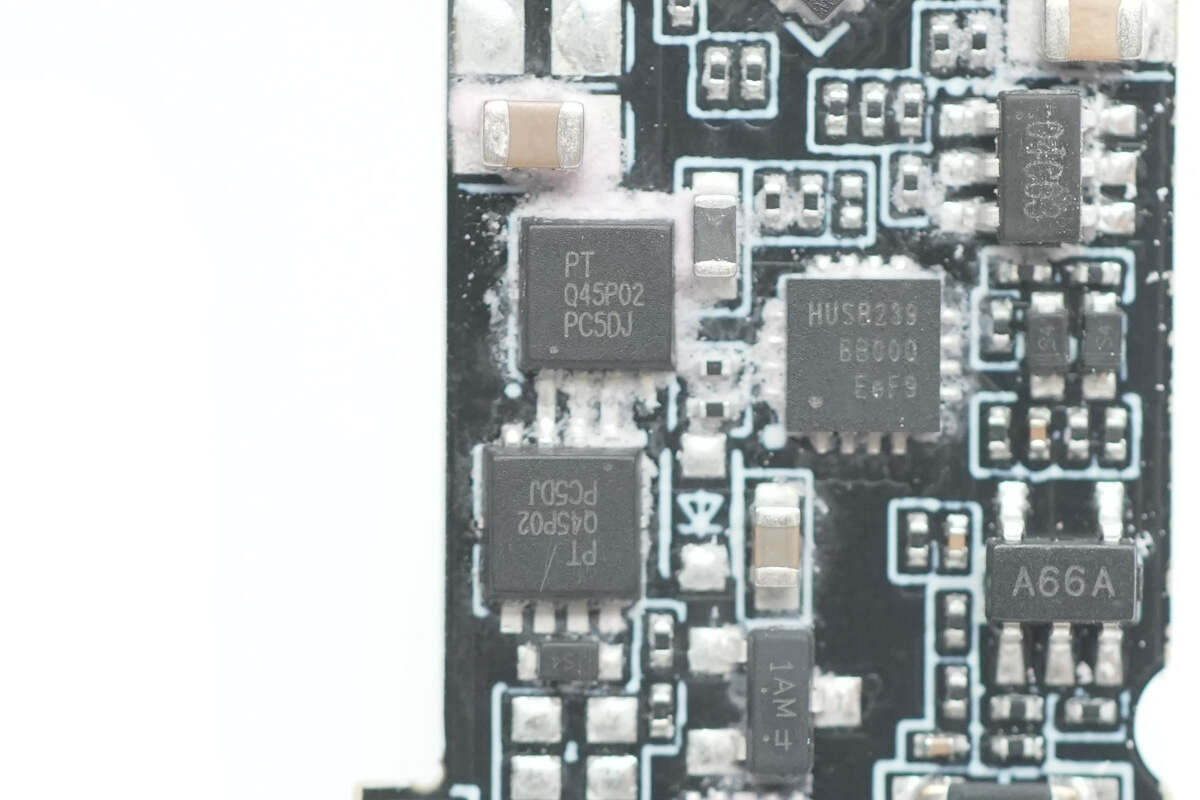
The MOSFET used for USB-C cable output control is the same model.
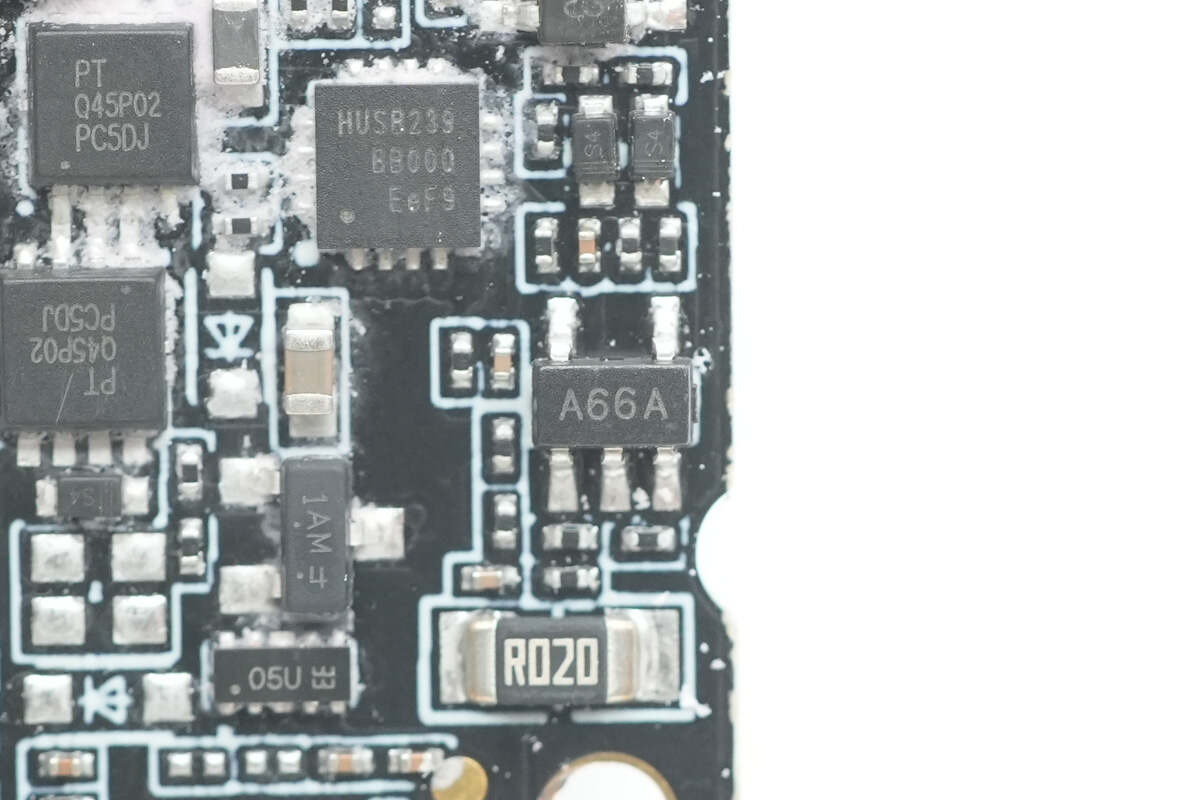
Close-up of a chip marked with "A66A".
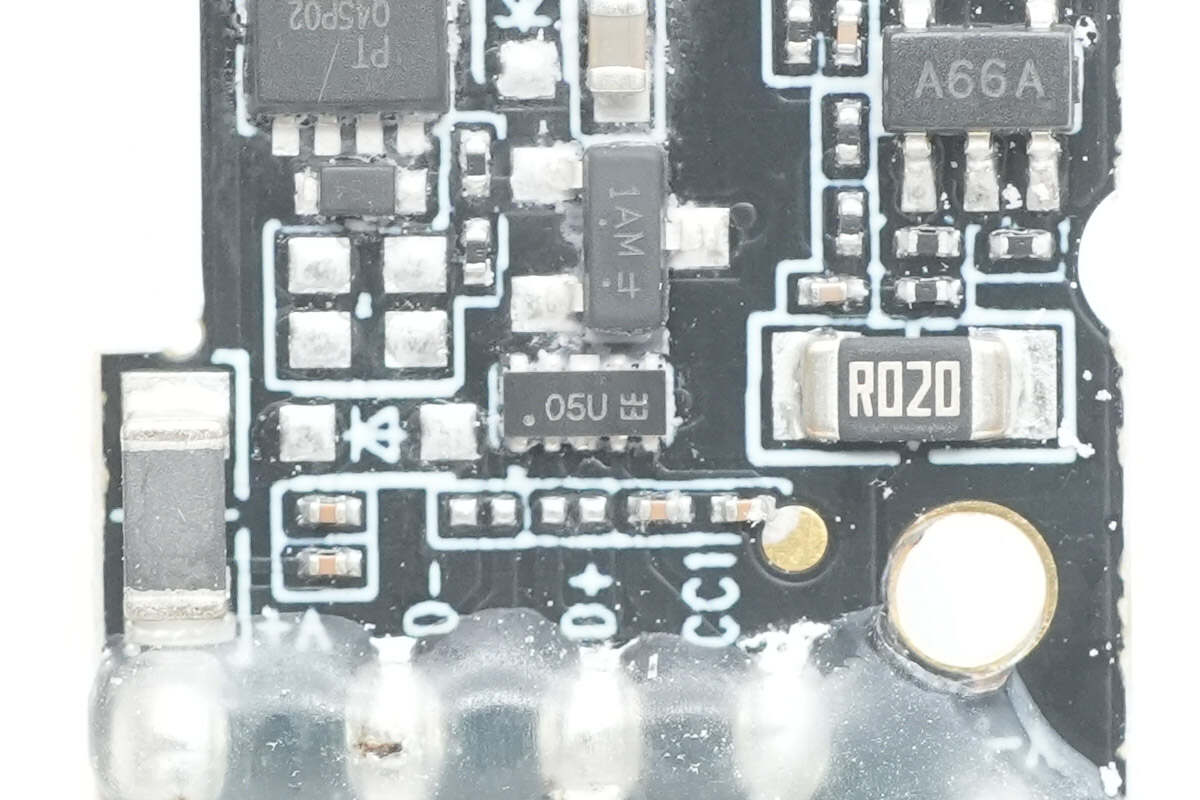
The TVS diode used for electrostatic protection on the output side has the same part number.
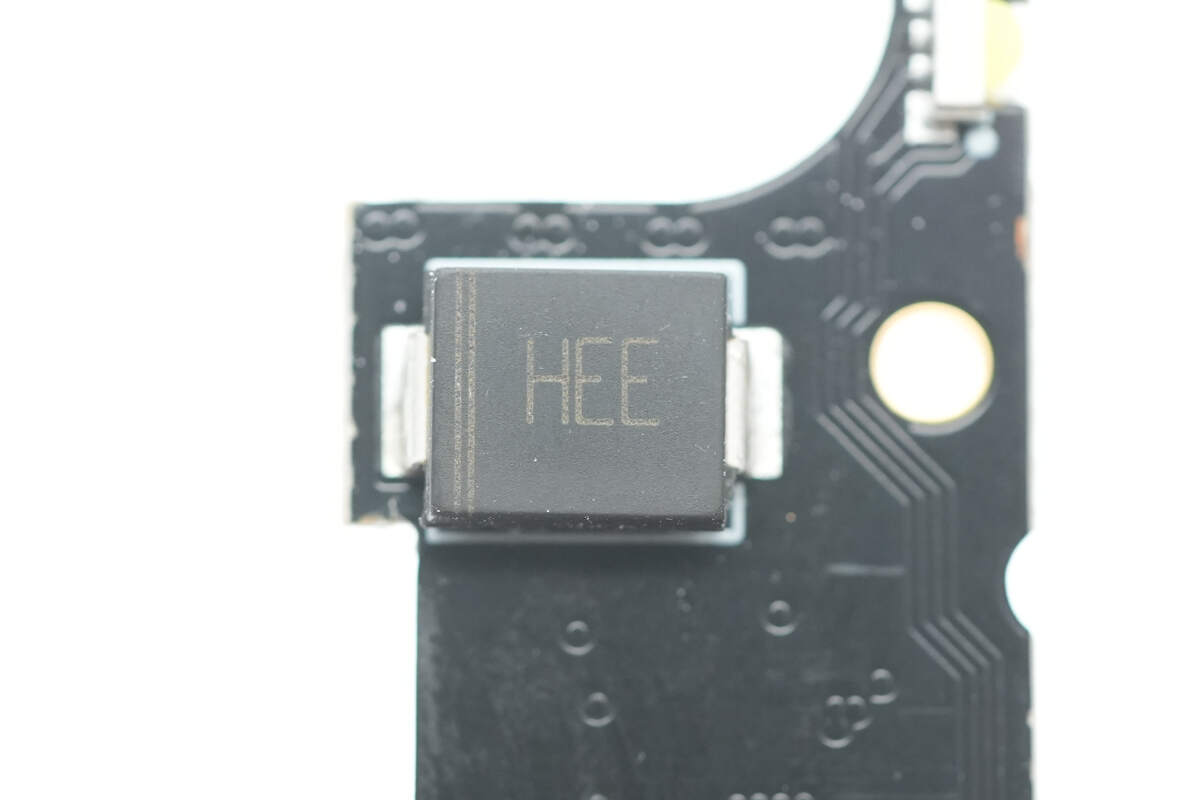
Close-up of another unidirectional TVS transient voltage suppression diode.
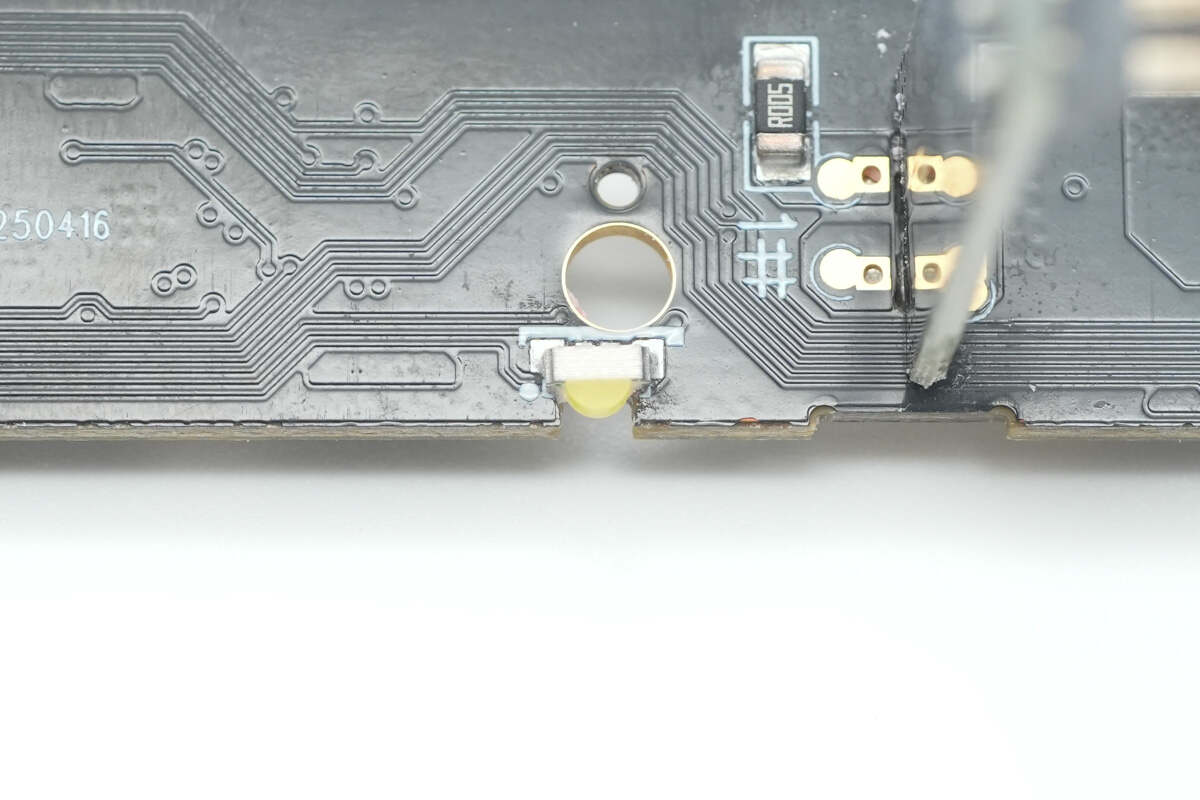
Close-up of the indicator light.
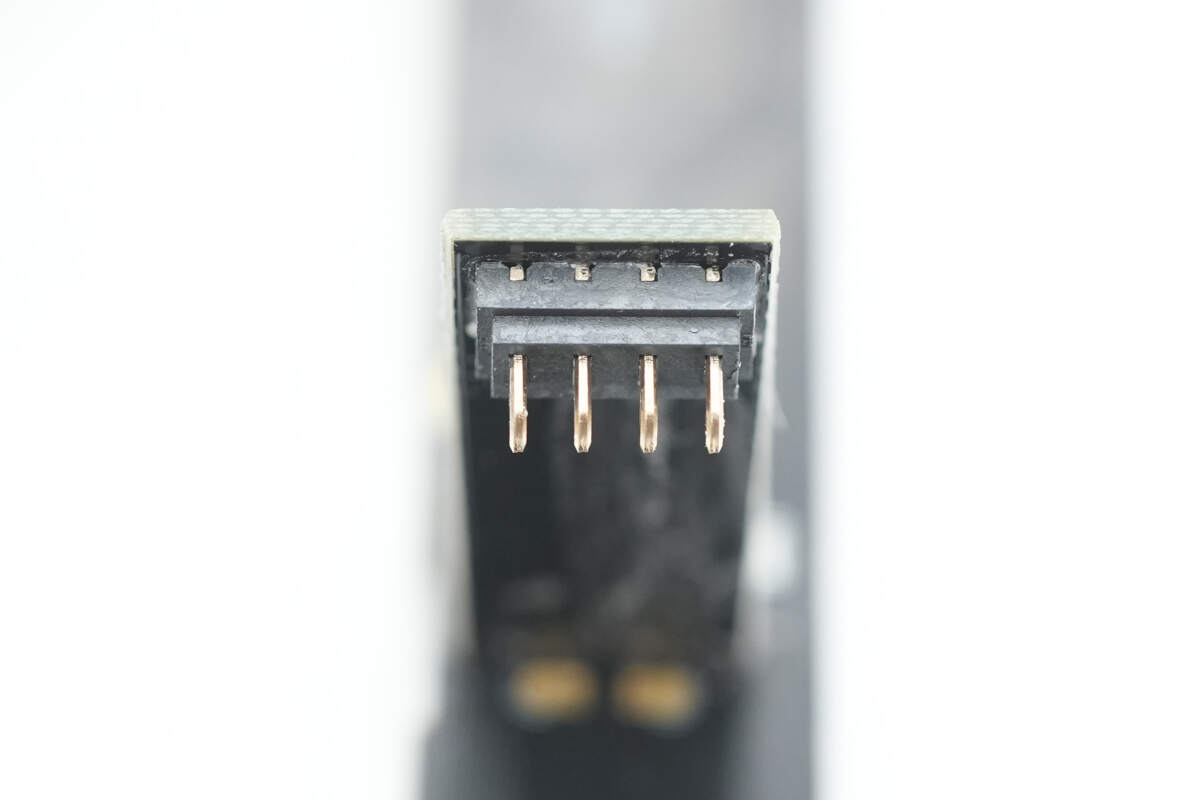
Close-up of the charging contacts.
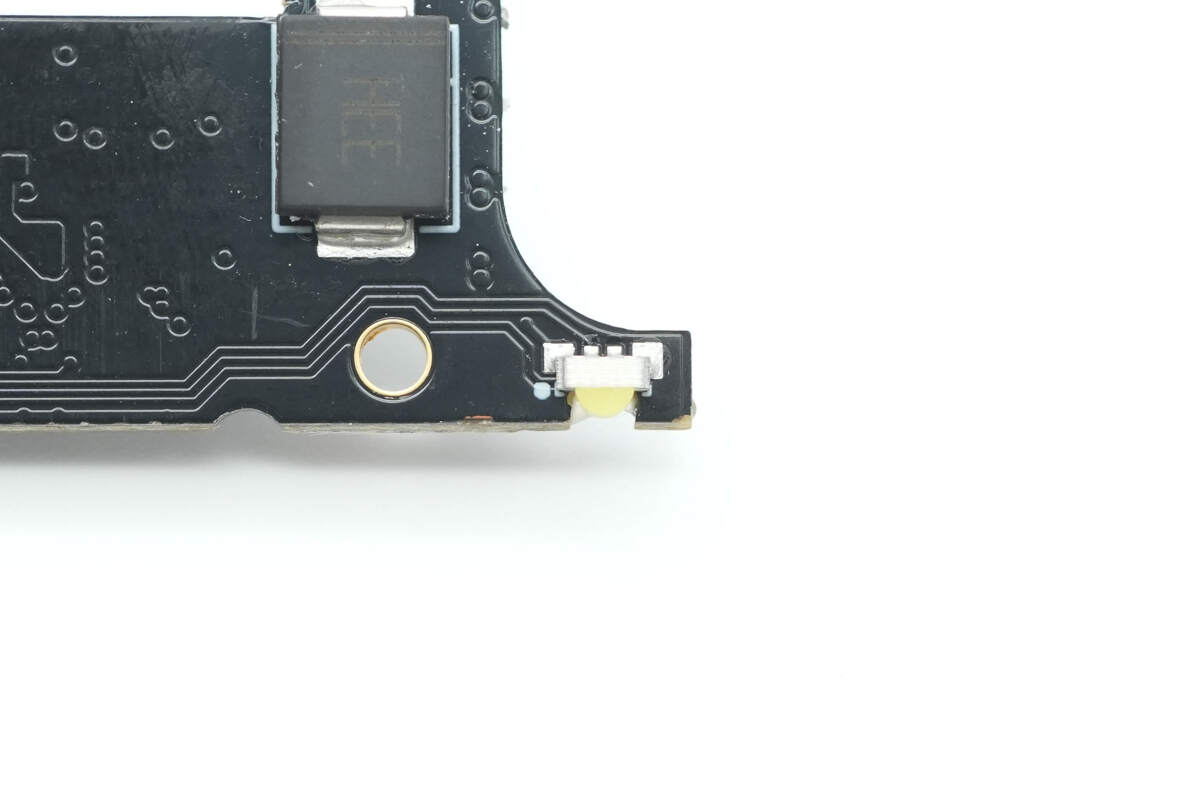
Close-up of the other indicator light.
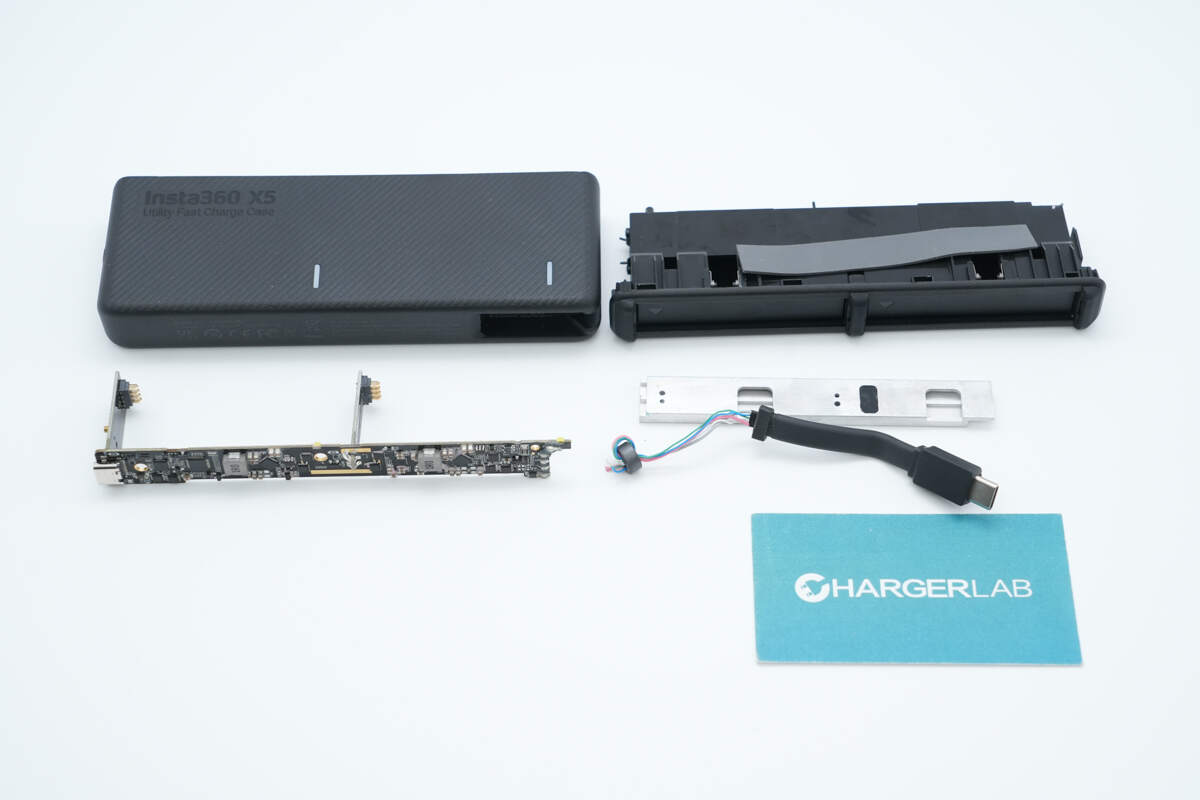
Well, those are all components of the Insta360 X5 Utility Fast Charge Case.
Summary of ChargerLAB
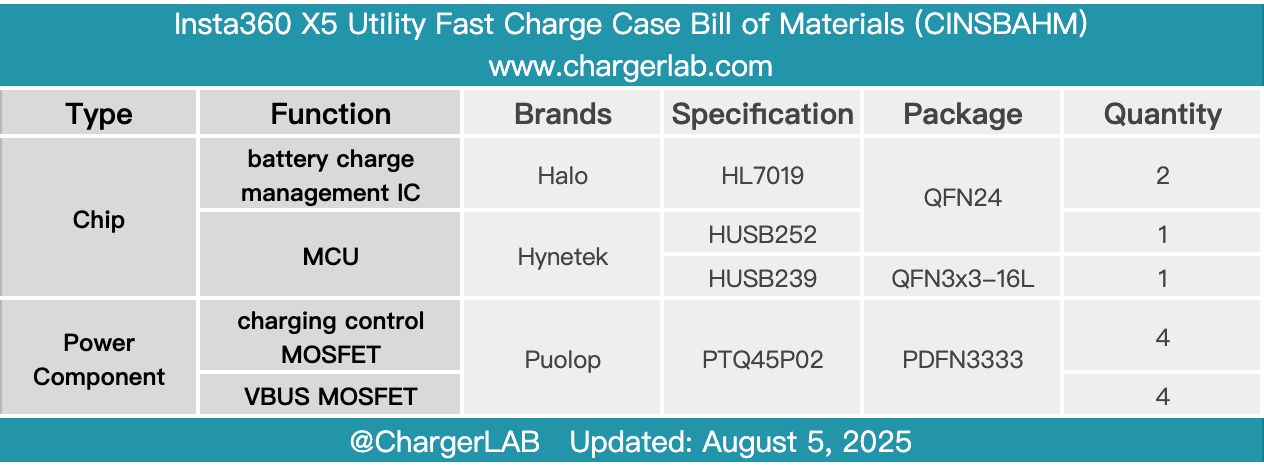
Here is the component list of the Insta360 X5 Utility Fast Charge Case for your convenience.
It features a USB-C input port, supporting up to 12V 3A 36W PD input. It is also equipped with dual battery slots and a USB-C output cable, allowing simultaneous charging of two batteries and the Insta360 X5, improving efficiency. Additionally, indicator lights provide charging status updates.
After taking it apart, we found that it uses a dual-layer housing design. The PCB is secured with screws and cooled through thermal gel, an aluminum plate, and a thermal pad. USB-C input and USB-C cable output control are managed by two controllers, the Hynetek HUSB252 and HUSB239. Battery charging management employs the Halo HL7019 solution, with all MOSFETs being Puolop PTQ45P02.
Related Articles:
1. Teardown of Zhizu 2700Wh Zhiba MAX LiFePO₄ Swappable Battery Pack (DM60N-45ET)
2. Teardown of Dyson Supersonic r 1700W hair dryer (HD17)
3. Teardown of Delta 300W Triple USB-C AC/DC Power Adapter (ADP-300EB B)

